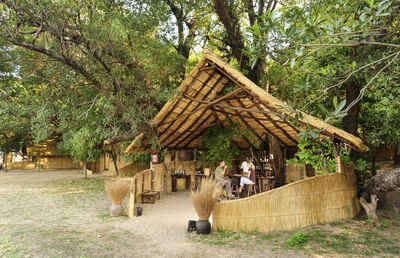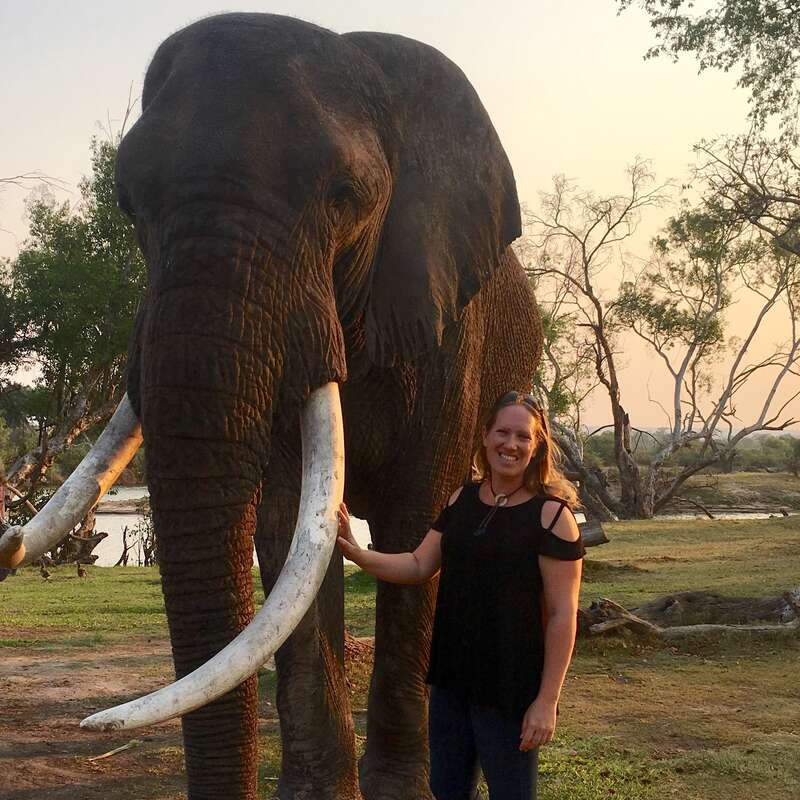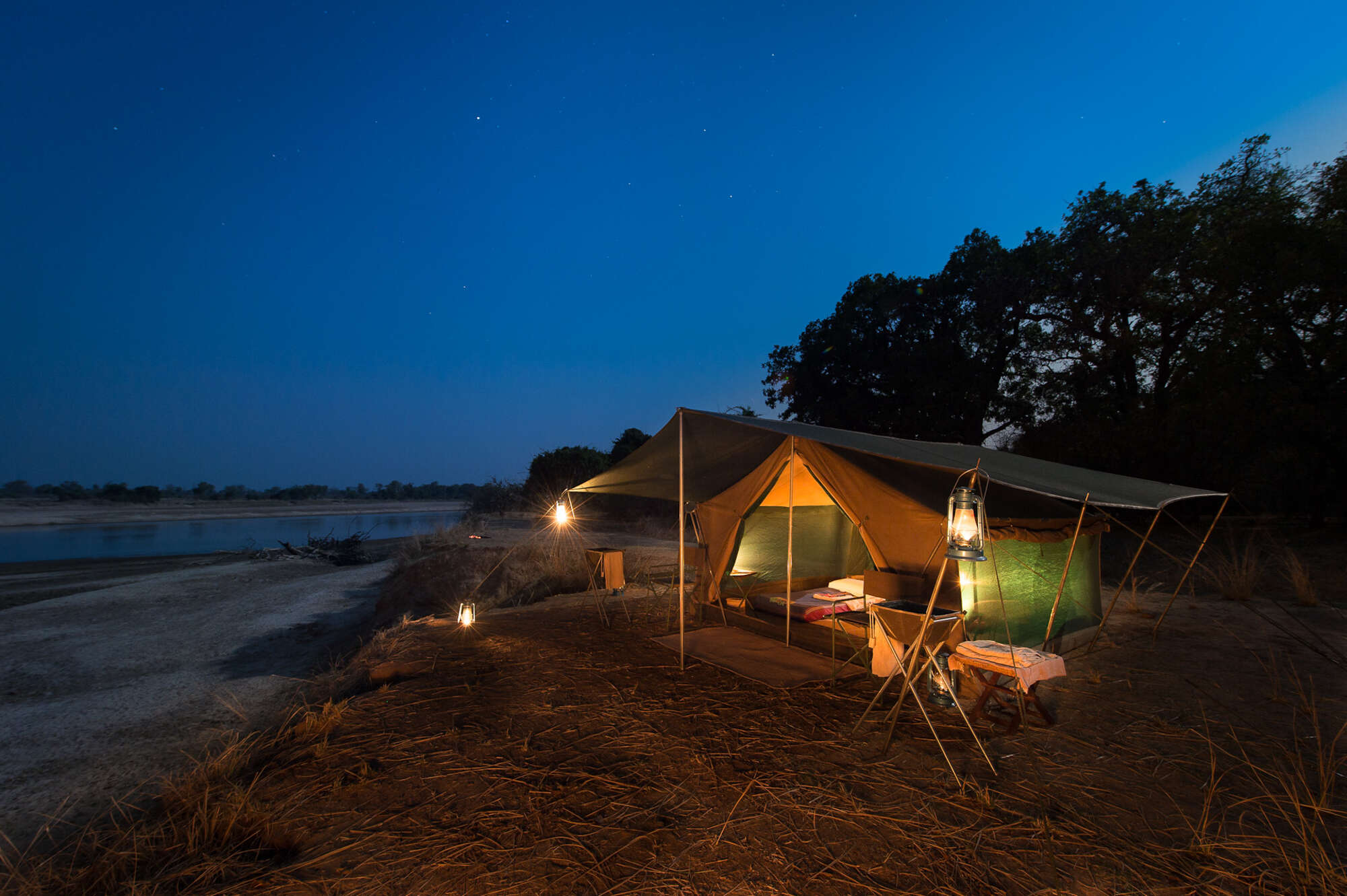About Luwi Bushcamp
Luwi Bush Camp is Norman Carr Safaris' most remote and rustic camp, with no other camps, or people, for miles.
It stands in a small grove of mahogany trees, and has great views over a floodplain to the Luwi riverbed beyond. Although the camp is away from the main Luangwa River, there are two permanent lagoons here, each with an impressive population of hippo and crocodile.
Luwi is a rustic, remote yet comfortable bushcamp built completely of natural materials with minimal impact on the environment. Although the focus is on walking safaris, concentrating on the sounds, smells and smaller wildlife that you can so easily miss from a vehicle, if you spend a few nights here you are likely to see larger game too.
Our view
Luwi is a rustic, remote yet comfortable bushcamp built completely of natural materials with minimal impact on the environment. Although the focus is on walking safaris, concentrating on the sounds, smells and smaller wildlife that you can so easily miss from a vehicle, if you spend a few nights here you are likely to see larger game too.
Accommodation
5 chalets
Children
OK for ages 12+
Open
15 May to 31 October
Activities

4WD Safari

Birdwatching

Cultural excursion

Fly-camping

Guided walking safari

Night drive
Traveller reviews of Luwi Bushcamp
39 real, un-edited reviews from Expert Africa's travellers.
Arrived 2 Jun 2024, 3 nights
"Luwi Bushcamp review"
Overall rating: Excellent
Arrived 28 May 2018, 2 nights
"Luwi Bushcamp review"
Overall rating: Excellent
Arrived 12 Sep 2017, 2 nights
"Luwi Bushcamp review"
Overall rating: Excellent
Arrived 18 Sep 2016, 2 nights
"Luwi Bushcamp perfect"
Overall rating: Excellent
Arrived 24 Jul 2016, 3 nights
"Beautiful Camp"
Overall rating: Good
Arrived 15 Aug 2015, 1 nights
"Luwi Bushcamp"
Overall rating: Excellent
Arrived 14 Jul 2015, 3 nights
"Luwi Bushcamp review"
Overall rating: Excellent
Arrived 6 Jul 2015, 2 nights
"Lions roaring at night!"
Overall rating: Excellent
Arrived 4 Oct 2014, 2 nights
"Luwi the real Bushcamp experience!"
Overall rating: Excellent
Arrived 16 Jun 2014, 2 nights
"rustic luxury in the bush"
Overall rating: Excellent
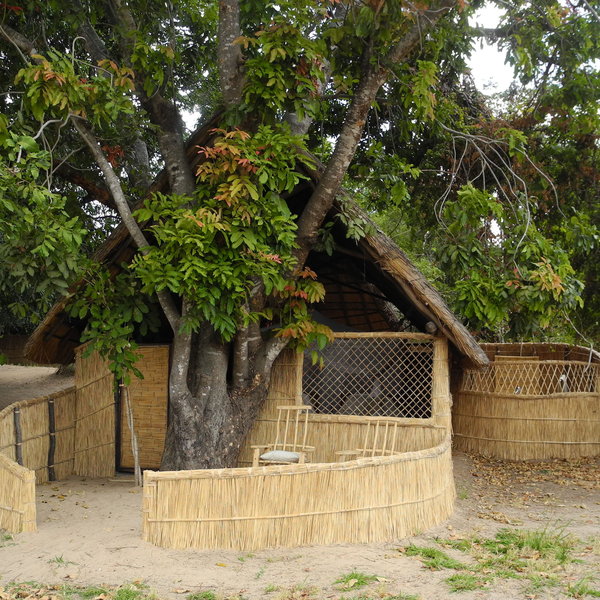
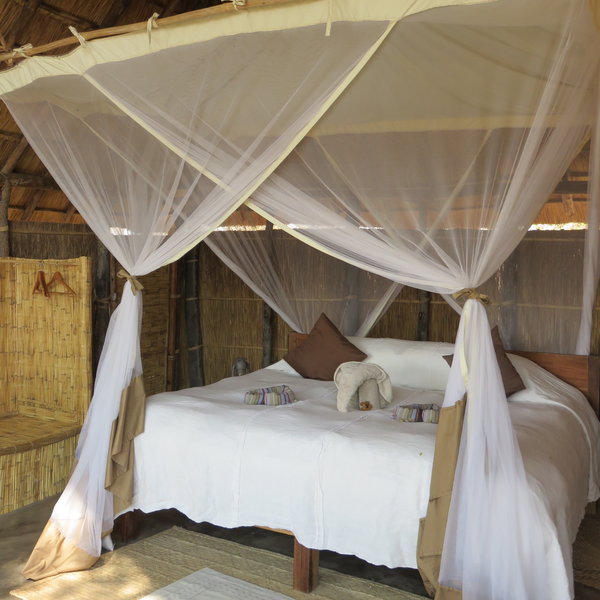
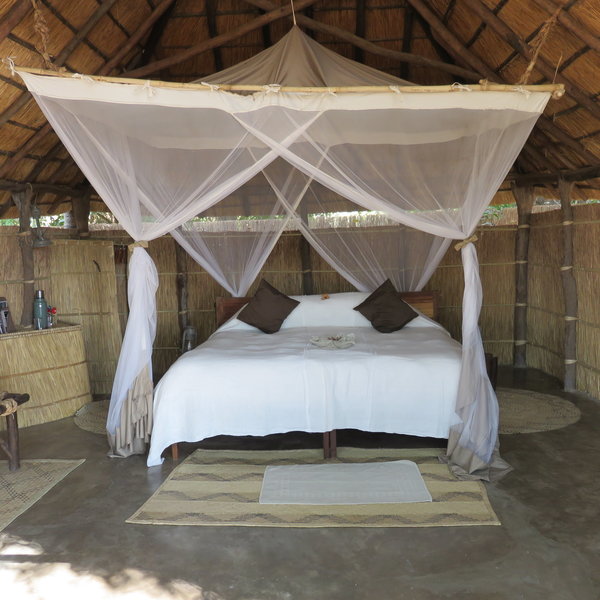
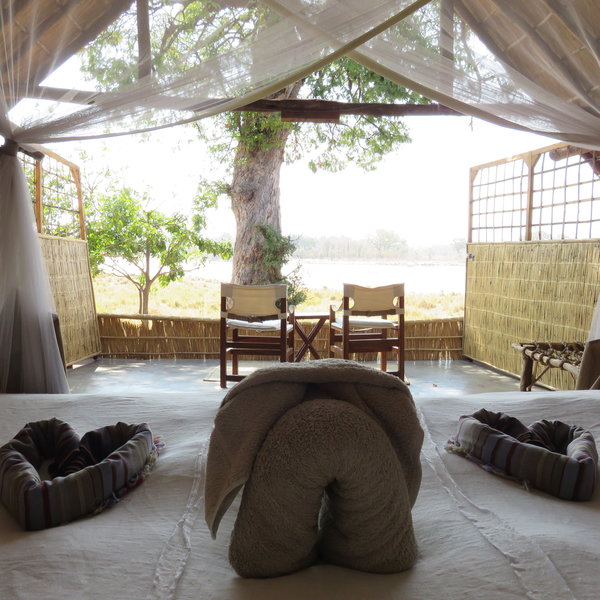
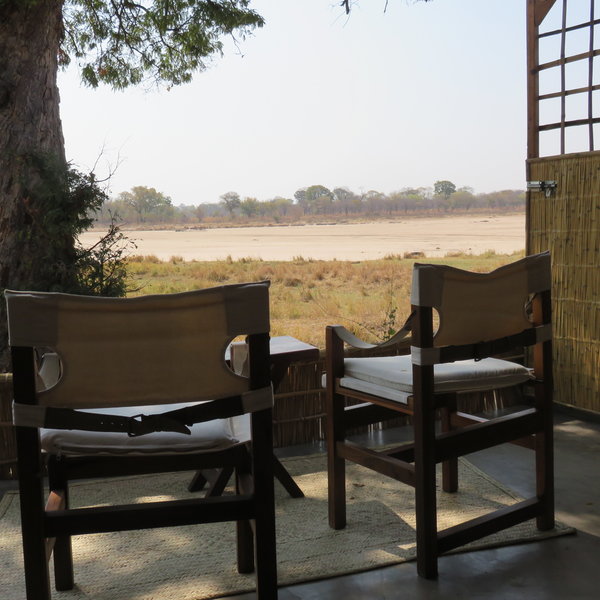
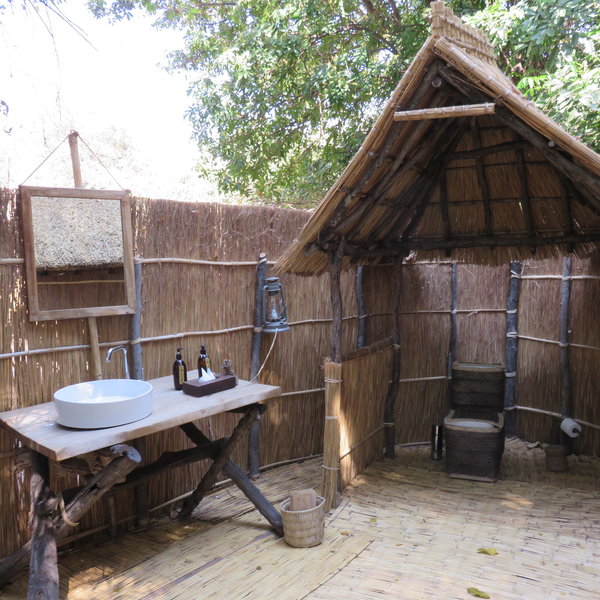
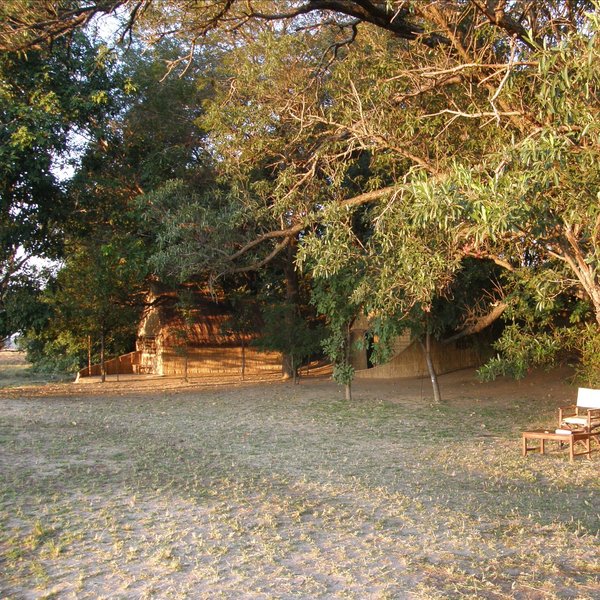
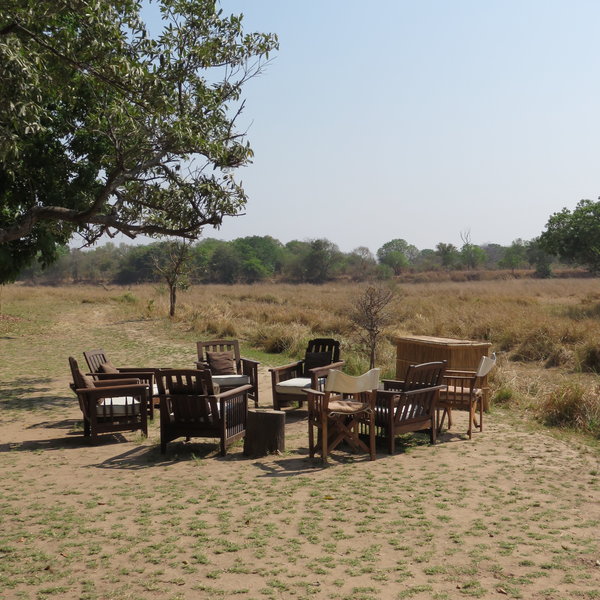
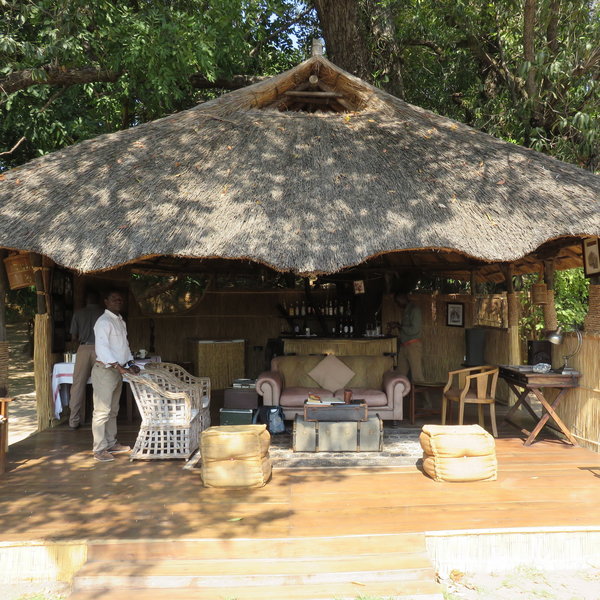
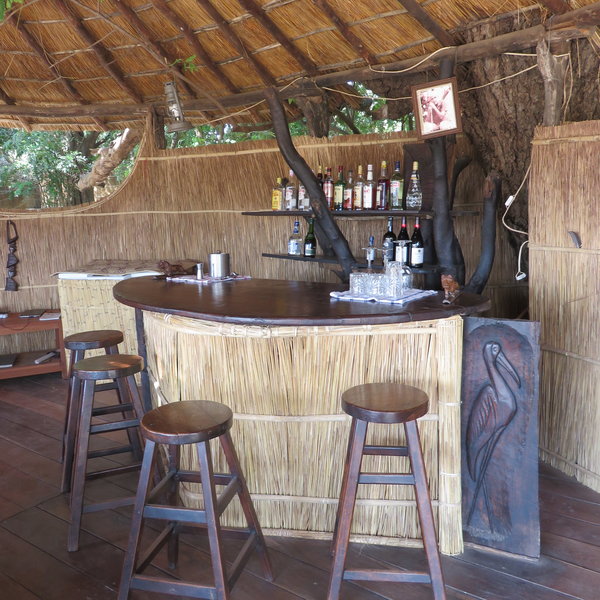
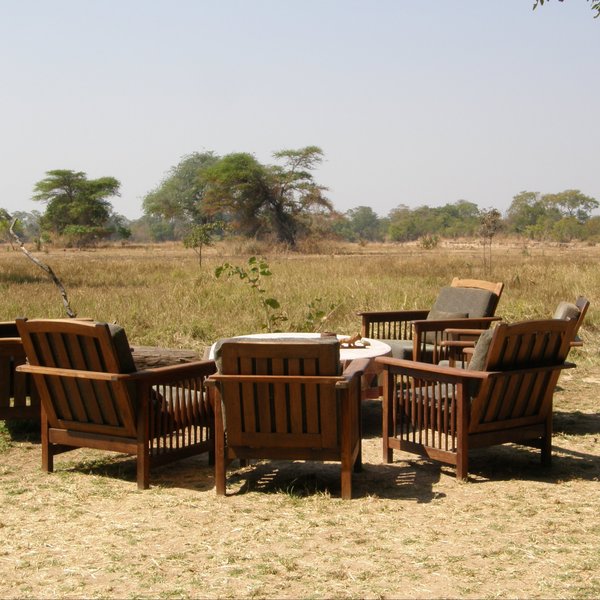
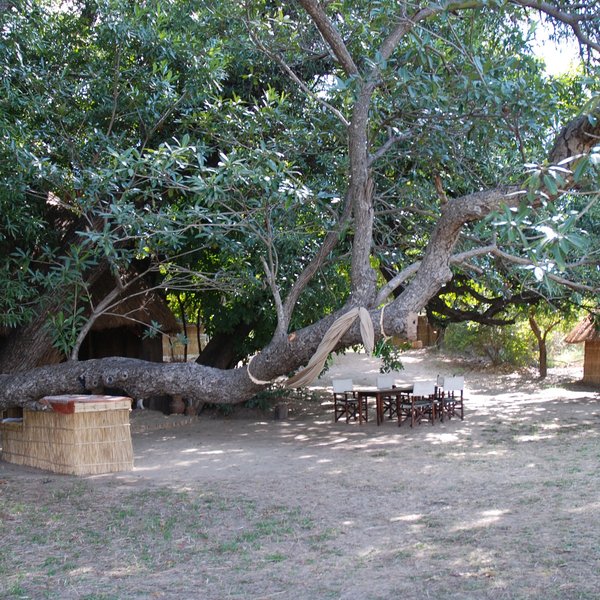
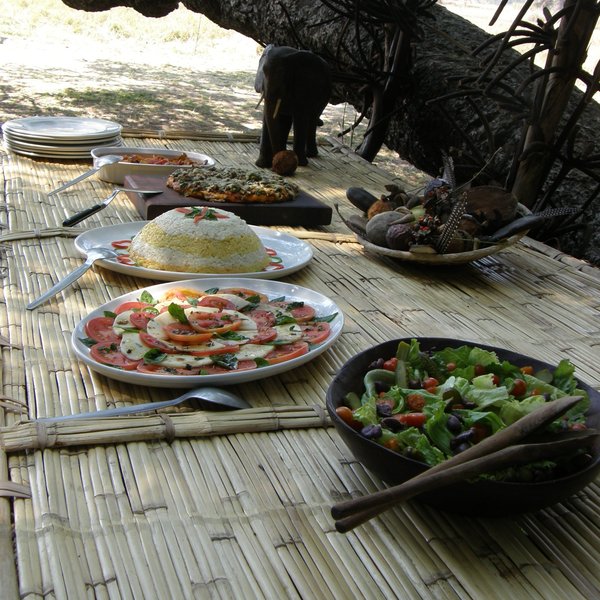
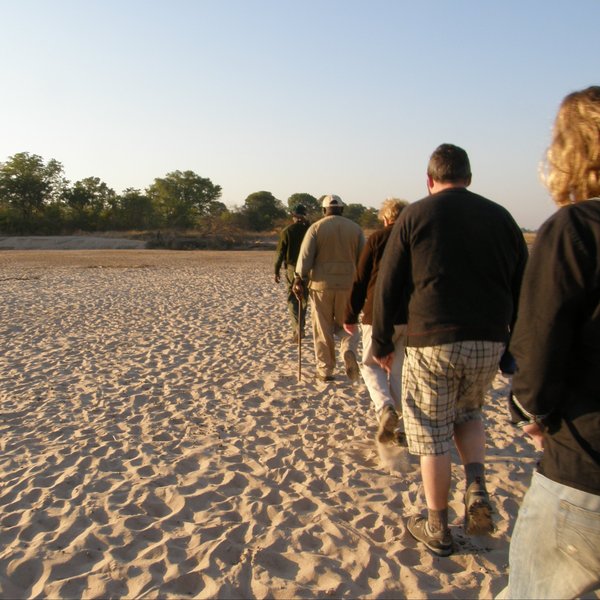
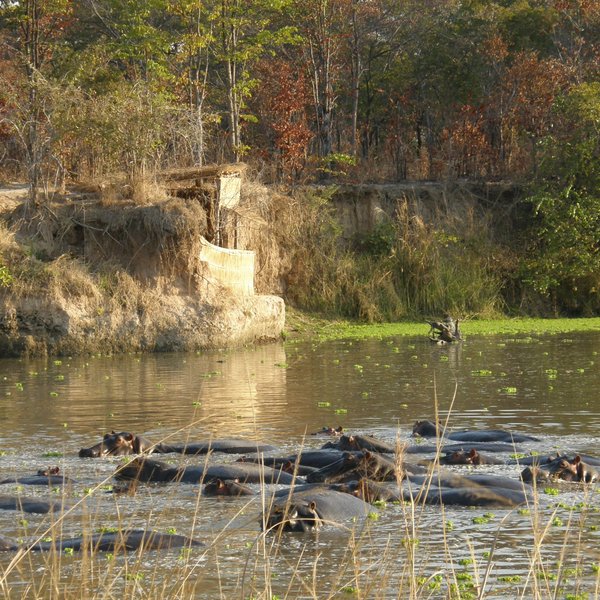
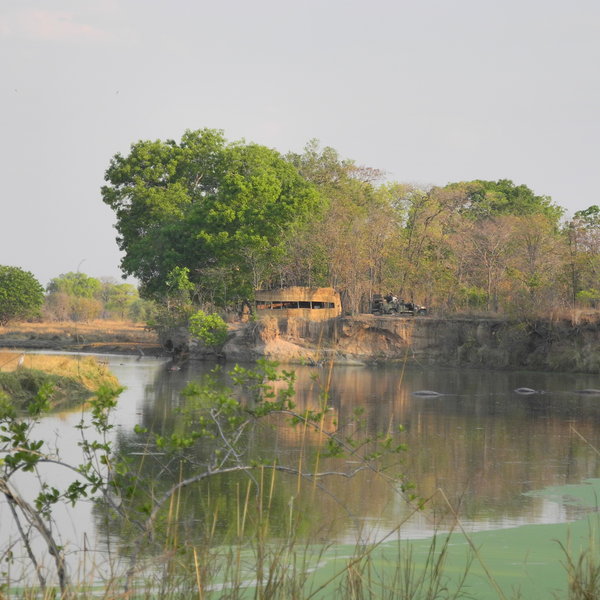
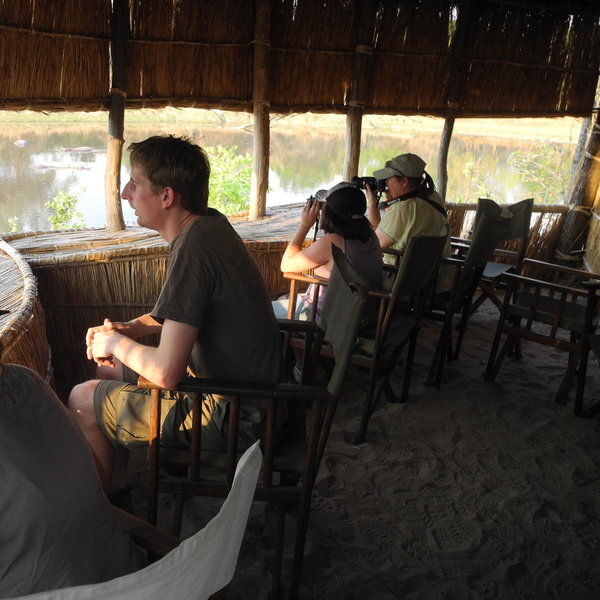
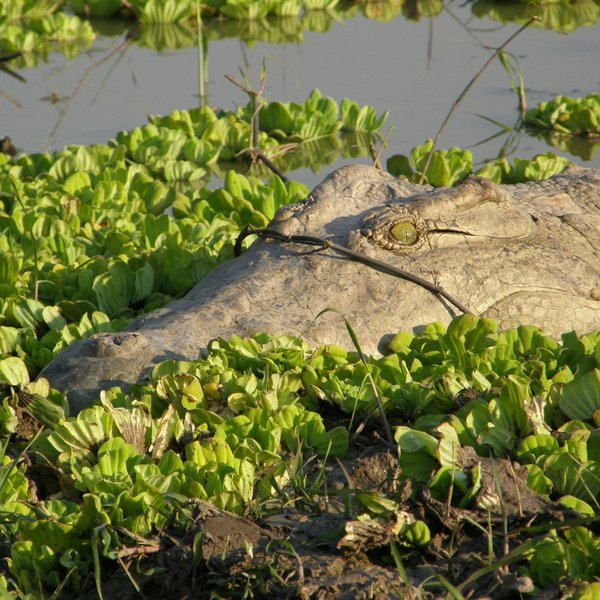
Expert Africa's gallery
When we travel we take lots of photos ourselves to give you a real and un-edited view of the safaris. See our 62 pictures and 1 videos of Luwi Bushcamp to get the candid view.
View galleryLuwi Bushcamp: Our full report
Luwi Bush Camp is Norman Carr Safaris' most remote and rustic camp, with no other camps, or people, for miles.
It stands in a small grove of mahogany trees, and has great views over a floodplain to the Luwi riverbed beyond. Although the camp is away from the main Luangwa River, there are two permanent lagoons here, each with an impressive population of hippo and crocodile.
Luwi is an intimate bushcamp with just five en-suite chalets of grass and thatch, tucked amongst the trees. Although each is slightly different, all are rustic but functional and comfortable, with twin or double beds under a large walk-in mosquito net and reed mats on the solid earth floors. The furniture is very rustic, too, with just a hanging rail and a shelf for your luggage, simply made from local wood and reeds.
The en-suite bathrooms are completely open to the sky and are very spacious. Showers have hot and cold running water, available all day, and there's a flushing toilet. There's no electricity at Luwi, but solar lanterns provide light in the bedroom and bathroom.
The honeymoon chalet is set a little away from the other three, and is slightly larger. Rather cleverly, its front wall swings open to create a private patio area and a completely open view from the bed out over the plain. Private meals can be arranged on the patio on request.
Luwi Bush Camp has a small open-sided main area, or 'chitenje', with a thatched roof and a sand floor. This houses the bar and a small reference library, with a few directors' chairs, but all other communal areas are spread around under the trees. A seating area surrounds the campfire and overlooks the floodplain, and another, with comfortable chairs around a table, is set up under shady trees. During the day, meals are usually taken in a shady spot near the bar, but come nightfall, a candlelit dinner may be set up overlooking the floodplain or perhaps even in the riverbed.
A short distance from camp there is a hippo hide overlooking one of the lagoons, which is a great quiet spot to spend the afternoon with a cold drink, waiting for the wildlife to come to you!
For an additional supplement guests can sleep out in the dry Luwi riverbed during the later months of the year. You’ll sleep on a surprisingly comfortable bedroll under a small portable mosquito net within a ring of bonfires and armed guards to keep larger animals away. As you watch the Milky Way progress across the crystal-clear night sky, it’s a magical way to get a true feel of the bush.
As Luwi normally has only one guide in camp, activities are agreed and done as a group. The emphasis is firmly on walking, with a guide and an armed scout, exploring a variety of habitats that include open floodplains, dry riverbeds, mopane woodland and the two lagoons. This is a good area of the park to search for the elusive roan antelope, eland and hartebeest which are almost never seen in other parts of the South Luangwa. On a previous visit we were fortunate enough to spot a small herd of roan antelope not too far from the road.
There are usually two walks a day, one in the morning and one in the afternoon. While the camp has a vehicle for spot-=lit night drives (yielding some impressive wildlife sightings on previous visits), there are few roads in the area so more ground can be explored on foot. One highlight is to walk the 7km between Luwi and its sister bushcamp, Nsolo. On one of our visits, we were lucky enough to spot a herd of eland along this route; our guide was very excited as he got us closer to them than he'd ever been to eland on foot!
The area around Luwi is very isolated, with no other camps in the vicinity. That’s usually a bonus, but in May/June, when the camp re-opens after the wet season, the wildlife can be a bit skittish, having seen no vehicles or people for six months. Conversely, the lagoons are a big draw for game in the dry months (July to October), and the Expert Africa team has had some exceptional sightings over the years, including lion in the riverbed, and a leopard stalking and killing a bushbuck.
Activities
4WD Safari
Birdwatching
Cultural excursion
Fly-camping
Guided walking safari
Night drive
Families & children
- Attitude towards children
- Luwi is happy to accommodate children of 12 years and over.
- Property’s age restrictions
- Children aged 12 years and over are welcome at Luwi.
- Special activities & services
- None
- Equipment
- None
- Generally recommended for children
- Luwi is a remote bushcamp with quite an adult atmosphere so is suited only to older children with a high degree of maturity.
- Notes
- Children will need to be constantly supervised by their parents as the camp is not fenced in and game wanders freely throughout.
Food & drink
- Usual board basis
- Full Board & Activities
- Food quality
- Members of the Expert Africa team have visited Luwi Bushcamp many times in the last decade, most recently in September 2017. Whilst we didn't get the chance to stay for a meal on this trip, on our previous visits here we have found the meals at Luwi and its sister camps to be particularly delicious, well prepared and well presented.
Breakfast is usually served around the campfire before your early- morning walk. As well as a buffet with a good choice of cereals and juices, there'll be porridge, toast, tea and coffee prepared over the fire.
A buffet brunch is laid out under the shade of a tree at about 11.30am, after the morning activity. We've previously enjoyed babootie (a warm lightly curried South African dish), vegetable quiche, beetroot and mozzarella salad and a green salad, followed by fruit salad.
Before heading out on your afternoon activity, you'll be served afternoon tea with a delicious freshly baked cake.
Dinner is usually a three-course meal, set up by candlelight under the stars. On one trip we were treated to a barbecue in the dry riverbed, lit by lanterns and candles. We started with butternut soup, which was followed by barbecued chicken, sausages, lamb steaks and vegetable kebabs, accompanied by coleslaw and a green salad. For dessert there was a very tasty sticky toffee pudding. - Dining style
- Group Meals
- Dining locations
- Indoor and Outdoor Dining
- Further dining info, including room service
- None.
- Drinks included
- Soft drinks, house wine and local spirits are included in the rates, but fine wines, champagne and imported spirits and liqueurs are charged as extras.
The tap water is filtered and suitable for drinking, but bottled water is also readily available from the bar if you prefer.
Our travellers’ wildlife sightings from Luwi Bushcamp
Since mid-2018, many of our travellers who stayed at Luwi Bushcamp have kindly recorded their wildlife sightings and shared them with us. The results are below. Click an animal to see more, and here to see more on our methodology.

100% success

100% success

100% success

100% success

50% success

0% success

0% success

0% success

0% success

0% success

0% success

0% success

0% success

0% success

0% success
Getting there
- Location
- South Luangwa National Park, Zambia
- Ideal length of stay
- We usually recommend two or three nights at Luwi Bushcamp as part of a longer safari combining some of its sister bushcamps: Kakuli Bushcamp, Mchenja Bushcamp and Nsolo Bushcamp, often starting or ending at the luxurious Chinzombo.
- Directions
- A 70-minute flight from Lusaka to Mfuwe is followed by a road transfer/game drive of approximately three hours to Luwi Bush Camp.
- Accessible by
- Fly-and-Transfer
Special interests
- Solo safaris
- Fantastic walking safaris, group dining and special wildlife hide at Luwi Bushcamp create a personal and intimate atmosphere. The camp is very remote and rustic, and charmingly appealing to solo travellers in Zambia. Ask us if we can waive the single supplement.
- See ideas for Solo safaris in Zambia
- Walking safaris
- Luwi Bushcamp is in an established walking area that offers a variety of habitats. These include two permanent lagoons, which are home to large numbers of hippos and crocs and attract a variety of other wildlife. Visit as part of a camp-to-camp walking safari.
- See ideas for Walking safaris in Zambia
Sustainability
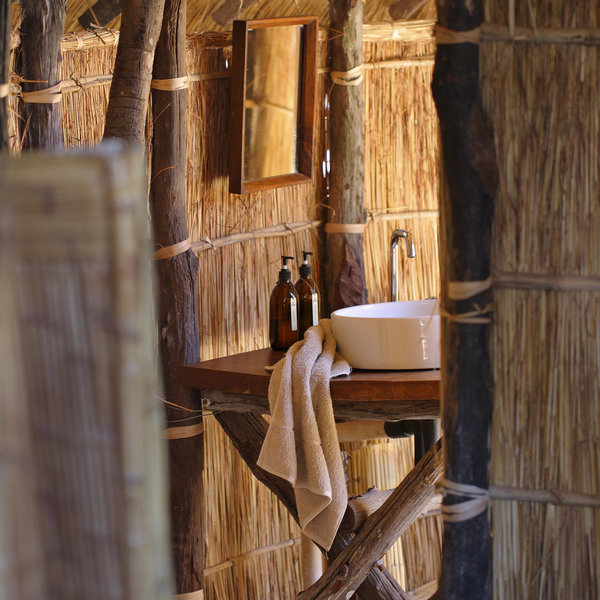
Traditional design using natural material
As part of Norman Carr Safaris, the pioneer of conservation-based tourism in Zambia, Luwi Bush Camp is one of the first remote bush camp in South Luangwa. Paving the way for sustainable tourism, the seasonal camp overlooking the floodplains of Lubi River stands out when it comes to using sustainable building materials, creating a design that fully immerses guests into the bush experience.
The idea behind constructing a seasonal camp in the heart of the South Luangwa National Park, with no other camps for miles around, was to minimize its imprint on the environment. Each of the five traditional huts that make up the solar-powered camp is built seasonally using natural materials such as wood, thatch and reed, and are scattered around a grove of evergreen Mahogany trees. Nevertheless, they provide all the necessary comforts such as en-suite bathrooms with all-day hot showers.
The architecture aimed at creating an authentic feel without sacrificing the environment is not only seen in how the tented suites are constructed, but also on where these are located. Guests have the possibility to relax in the wildlife hide which overlooks a permanent hippo and crock filled lagoon, providing them with the chance to observe first-hand the African wildlife.
See more great sustainability projects in Zambia
Communications
- Power supply notes
- There are no charging facilities in the chalets, but items can be charged in the communal main area. Note, however, that you may have to leave your electronics unsupervised.
- Communications
- Luwi Bush Camp has 24-hour radio communication with its sister camps in South Luangwa National Park and with its base at Kapani Lodge.
- TV & radio
- Luwi has no TV or radio.
- Water supply
- Borehole
- Water supply notes
- All of the rooms have flushing toilets, and washbasins and showers with plumbed hot and cold water.
Health & safety
- Malarial protection recommended
- Yes
- Medical care
- The guides and manager at Luwi are trained in first aid. The various safari operators in South Luangwa National Park sponsor a doctor who is based usually based at Mfuwe Lodge and who is available to tend to anything more serious. For serious emergencies, Luwi has links to a flying-doctors’ service.
- Dangerous animals
- High Risk
- Security measures
- After dark, guests are escorted to and from their chalets by a guide.
- Fire safety
- There is a fire extinguisher in the kitchen area and hoses at strategic points around the camp.
Useful info
- Disabled access
- On Request
- Laundry facilities
- A complimentary laundry service is included, but this does not include ladies’ underwear; soap for this is provided in the chalets. Note that clothes are hand washed and coal ironed.
- Money
- No exchange facilities are provided.
- Accepted payment on location
- A stay at Luwi is fully inclusive, but if you would like to tip the staff, we recommend that you use US dollars or Zambian kwacha if possible. In the unlikely event that payment for anything else is required, this can be arranged through Norman Carr Safaris' base camp, Kapani Lodge.
Plan and book your trip with Expert Africa
All of our trips are tailor-made, so we'll always adapt them to suit you. Talk to an Expert and let us plan and arrange your perfect trip.

Talk to an Expert
Call or email us now! We’ll match you with the Specialist in our team who is best suited to help you. Then together we can start planning your trip.

Set up your itinerary
Based on our experience and your ideas, your specialist will create a detailed, costed itinerary. We’ll refine it together, until we have a trip that you’re perfectly happy with.

Prepare for your trip
The same Specialist will make the seamless arrangements for your trip, send you detailed travel documents, and be available to answer any questions before you depart.

Travel with peace of mind
After you set off, you’ll be cared for by our partners in Africa, most of whom have worked with Expert Africa for decades. And if you ever need us urgently, we’re available 24/7.

When you return
We love to learn about your trip, and so will always be grateful if you’ve the time to give feedback to your Specialist when you return.
Luwi Bushcamp's location
Look closer at the environment and surroundings of Luwi Bushcamp.
Excursions from Luwi Bushcamp
Optional extra day-trips and excursions possible whilst you're staying at Luwi Bushcamp. Talk to us: these are usually best arranged before you go.
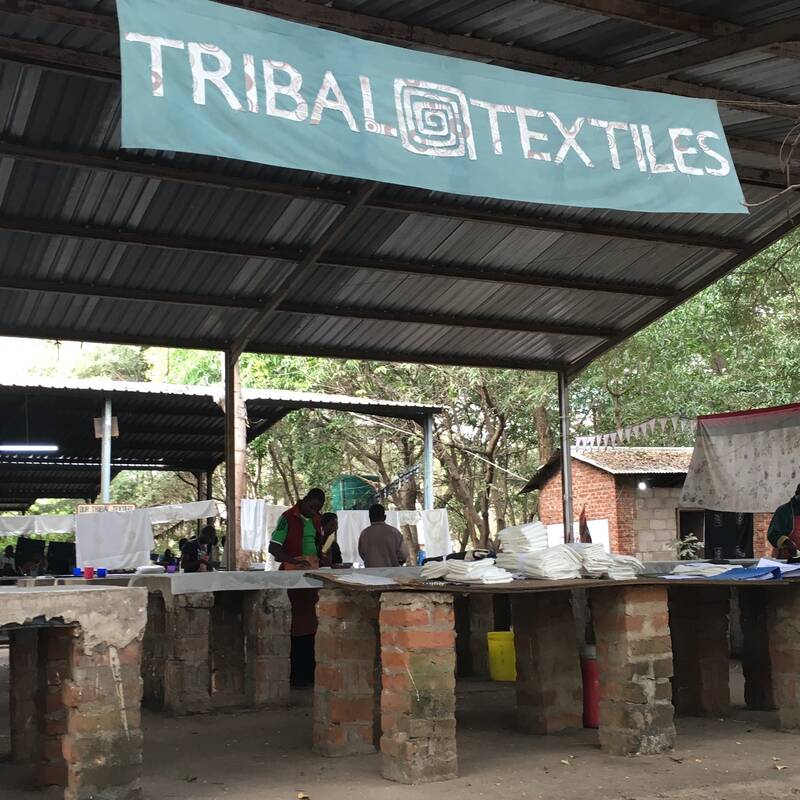
Tribal Textiles Tour
One - two hours
Visit the Tribal Textiles workshop, where hand-painted textiles are produced by more than a hundred local people. The workshop is close to Mfuwe Airport, so is ideally placed for a stop en route to/from the South Luangwa. With products ranging from cushion covers to bags and T-shirts, it's a great place for souvenir shopping while at the same time supporting the local community.
More about Tribal Textiles TourOther lodges in South Luangwa National Park
Alternative places to stay in this same area.
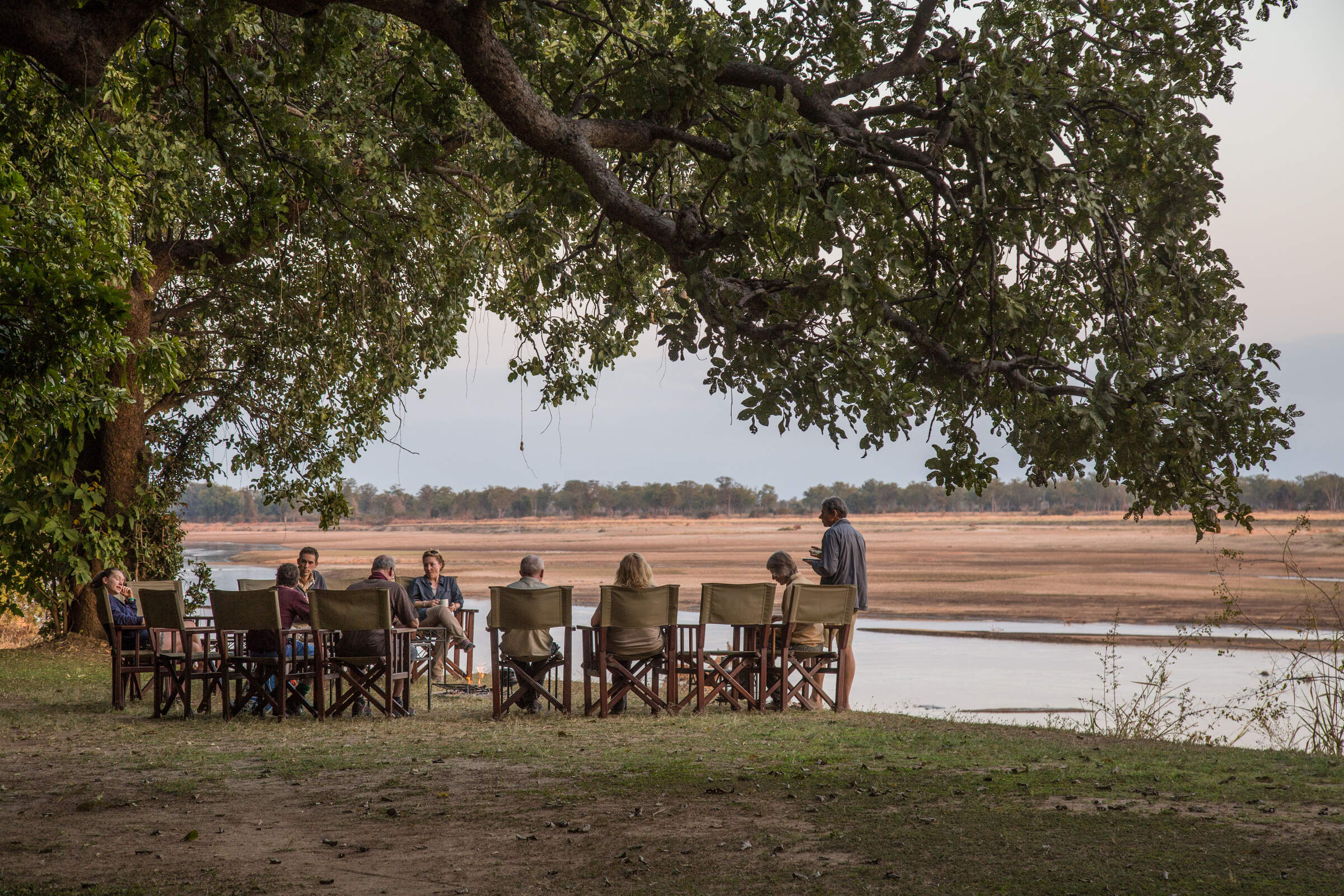
Tafika
One of the best camps in Zambia, Tafika is naturally built, combining excellent service and food with top guiding skills for a superb wildlife experience.
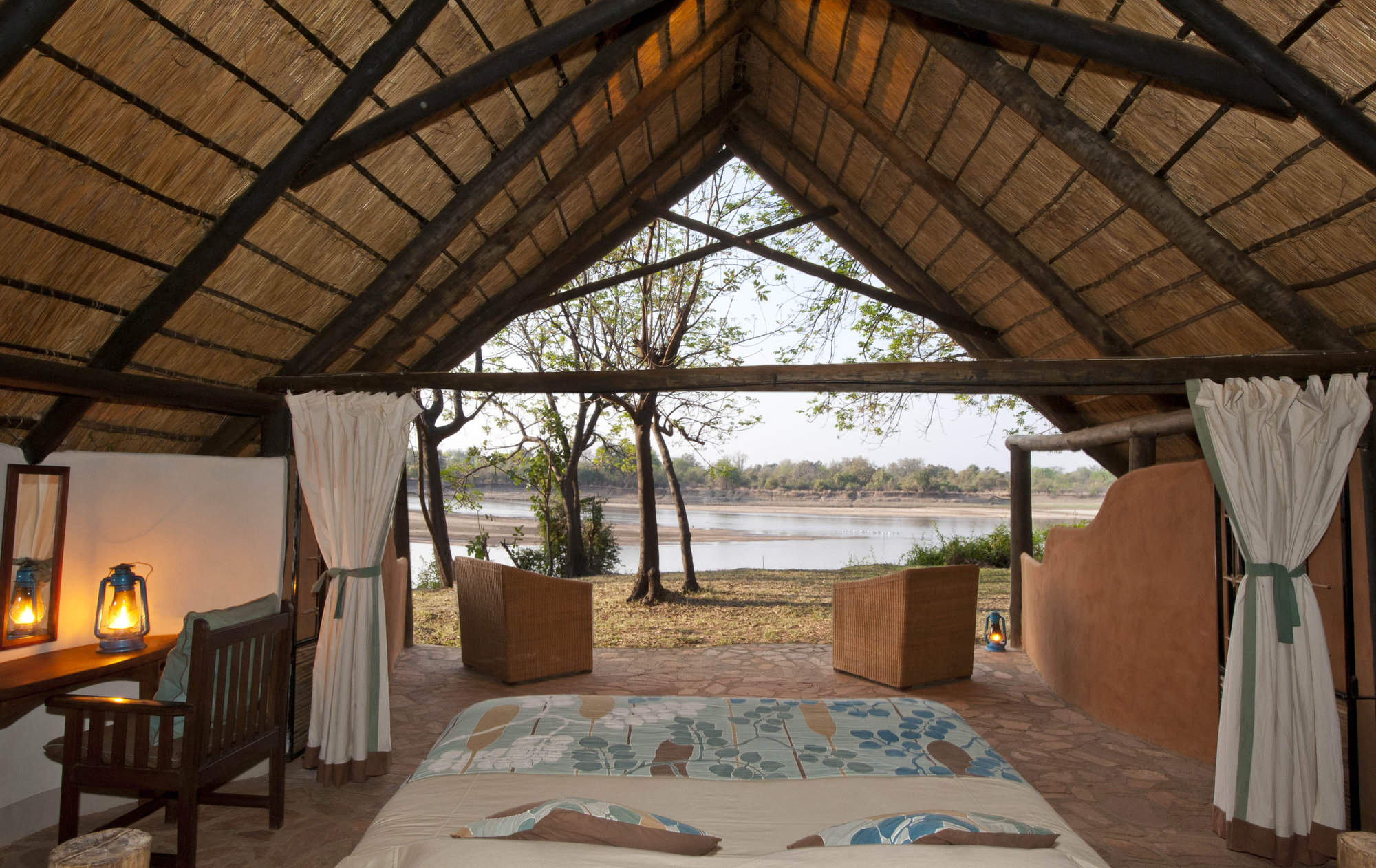
Nkwali
On the banks of the Luangwa River, with its own access to the national park, the intimate Nkwali is open year round.
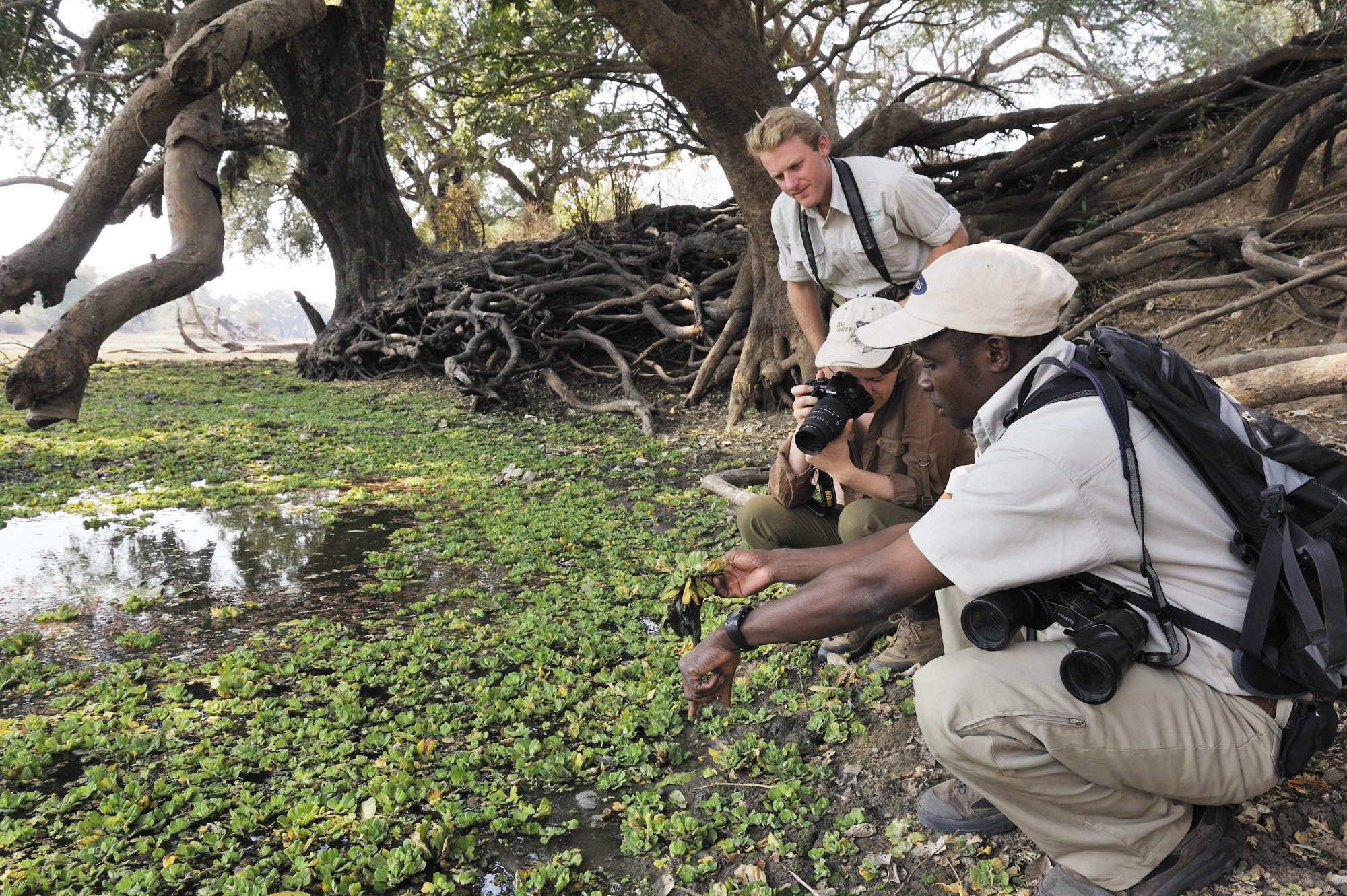
Kaingo Camp
Small and owner-run, the riverside Kaingo occupies a a quiet but excellent game area, with a series of wildlife hides and a focus on photography.
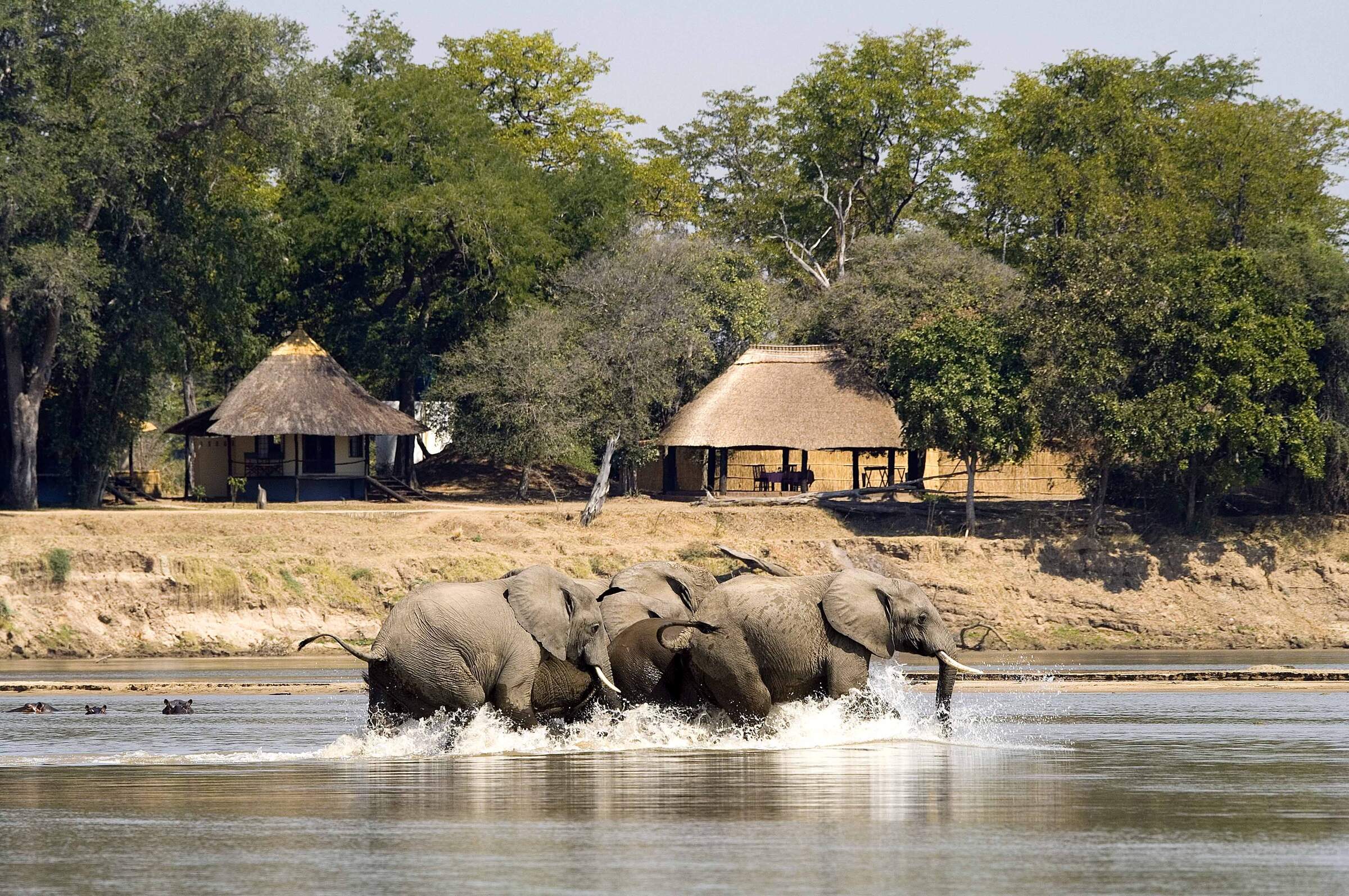
Nsefu
One of the Luangwa's oldest camps, Nsefu is a great safari camp in a remote, beautiful and game-rich location with top-rate guiding.
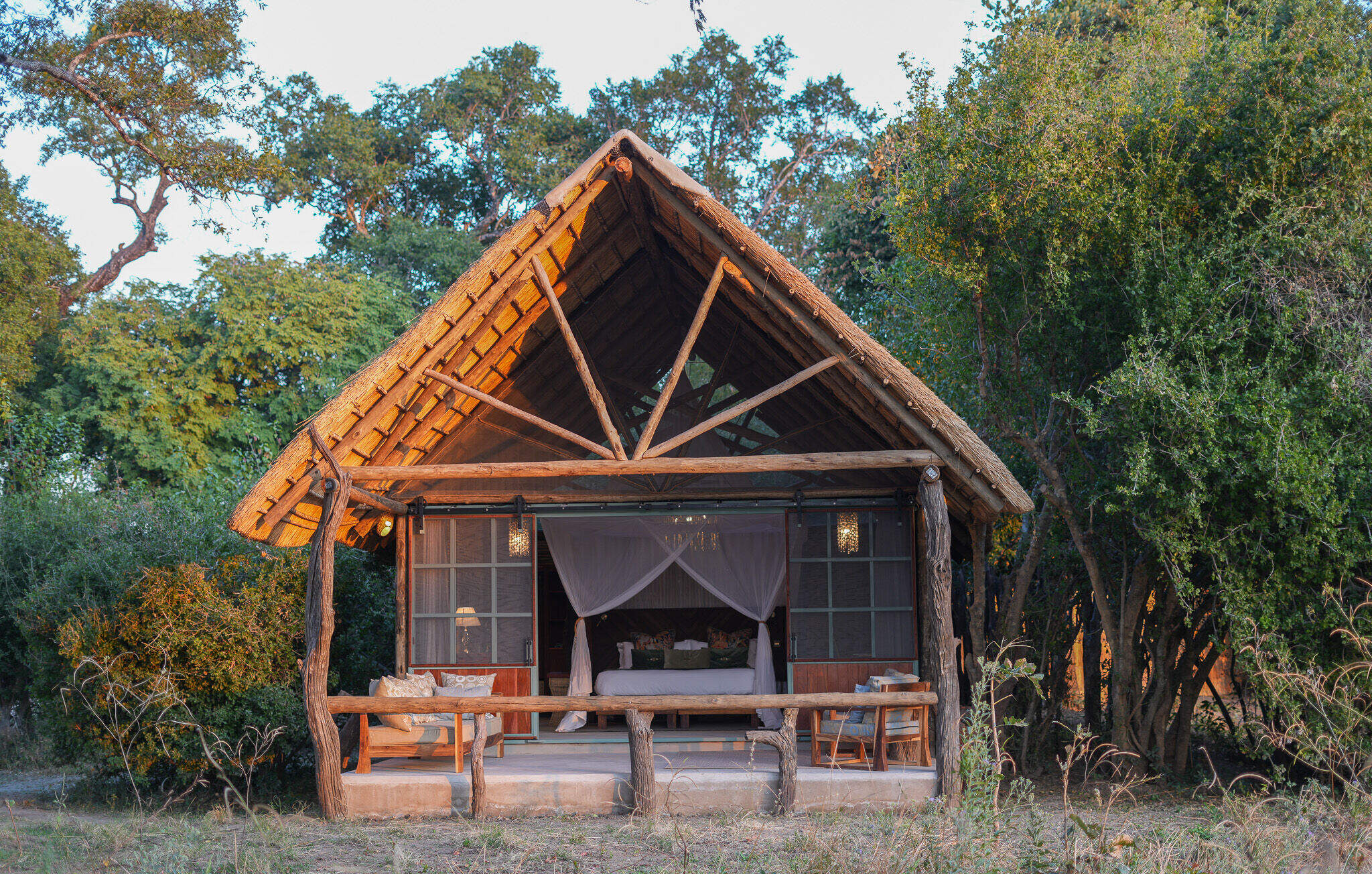
Mwamba Bushcamp
Small, remote and owner-run, Mwamba offers first-class walking, 4WD safari drives and superb hides, with excellent guides and a real bush feel.
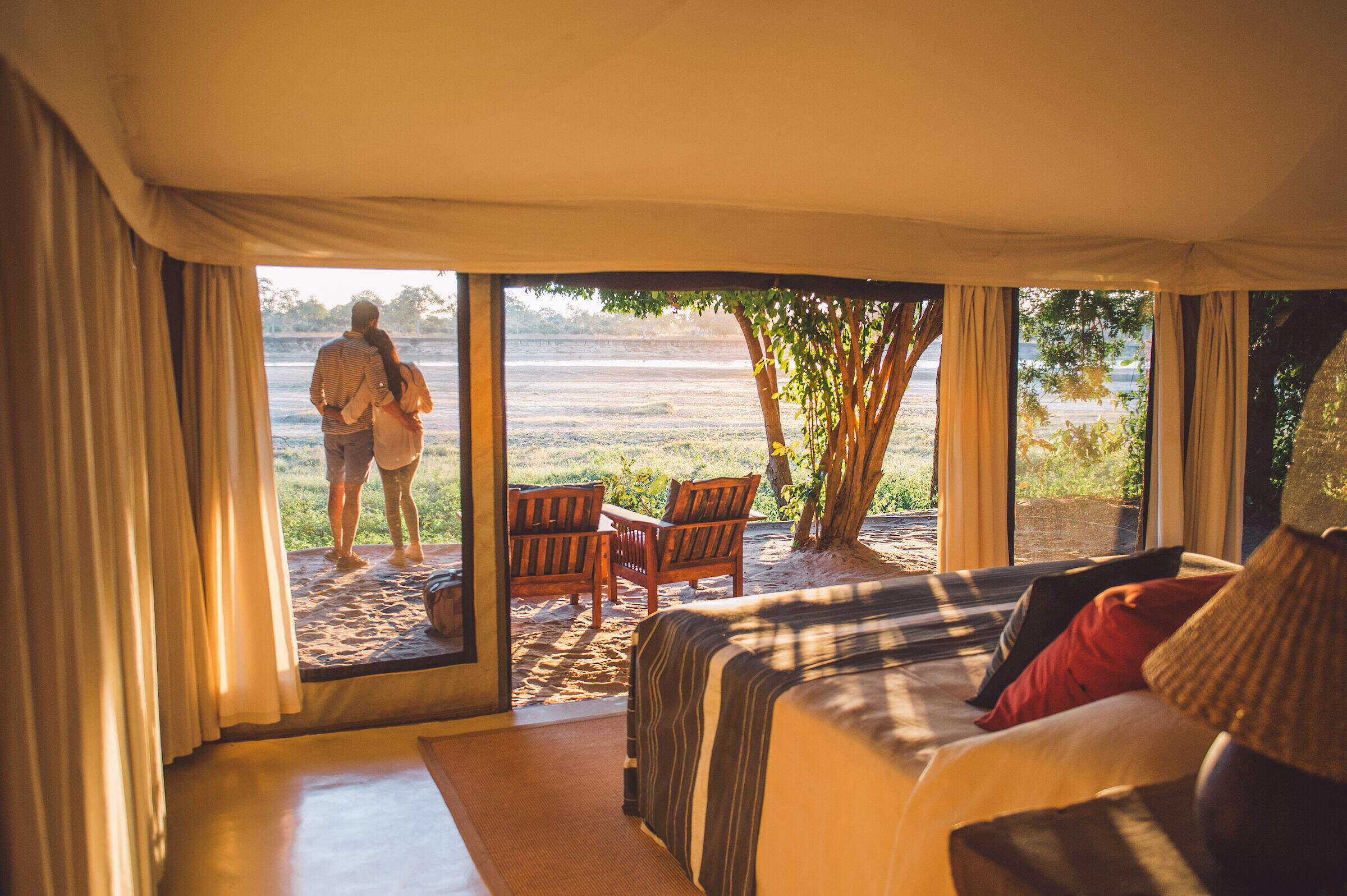
Tena Tena
One of the Luangwa's best camps, in a beautiful, remote bush location, Tena Tena is very small, exceedingly well-run and has top-rate guiding.
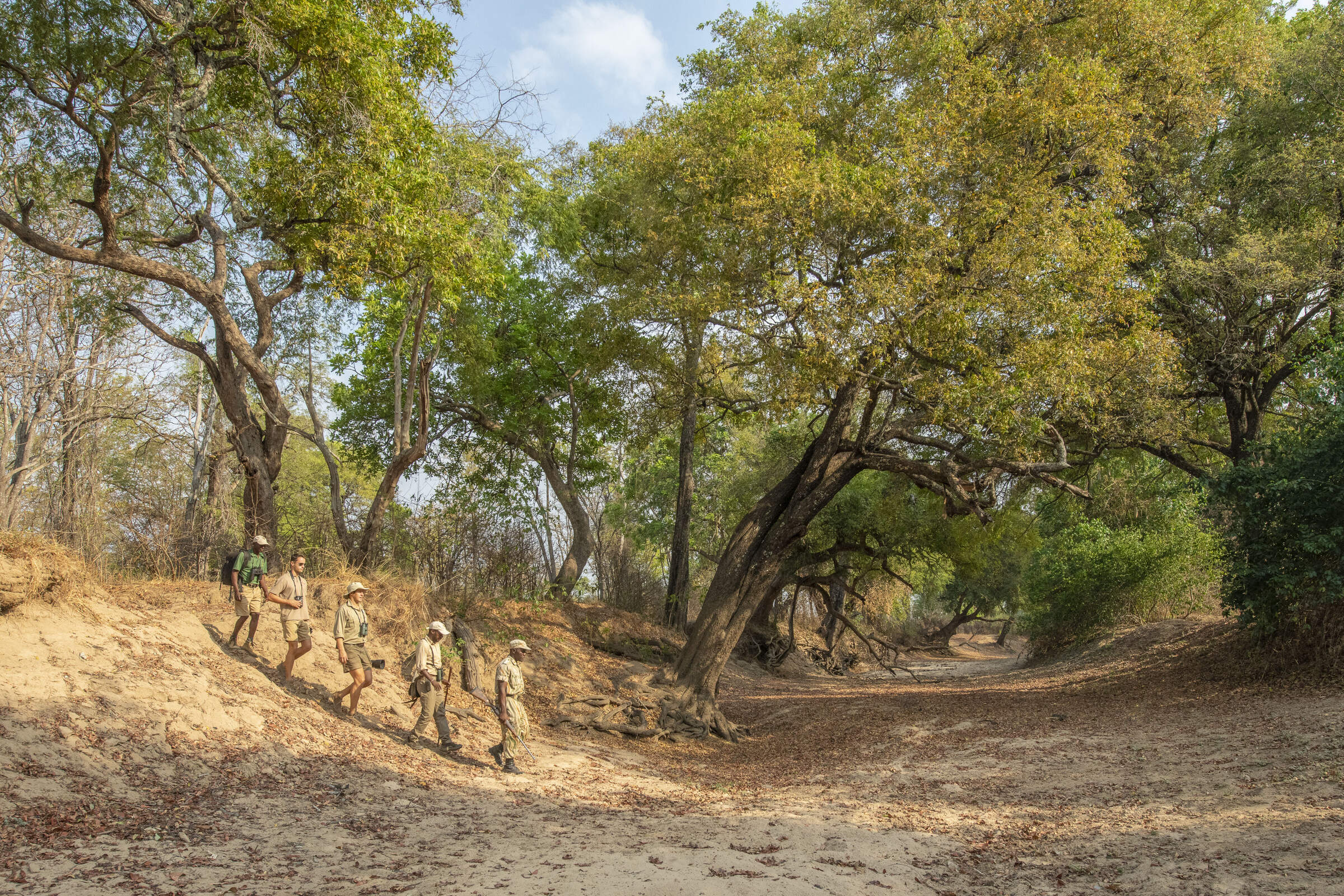
Chikoko Tree Camp
Chikoko Tree Camp is an excellent small, rustic bushcamp that concentrates on walking safaris, and is run by a top-quality operation.
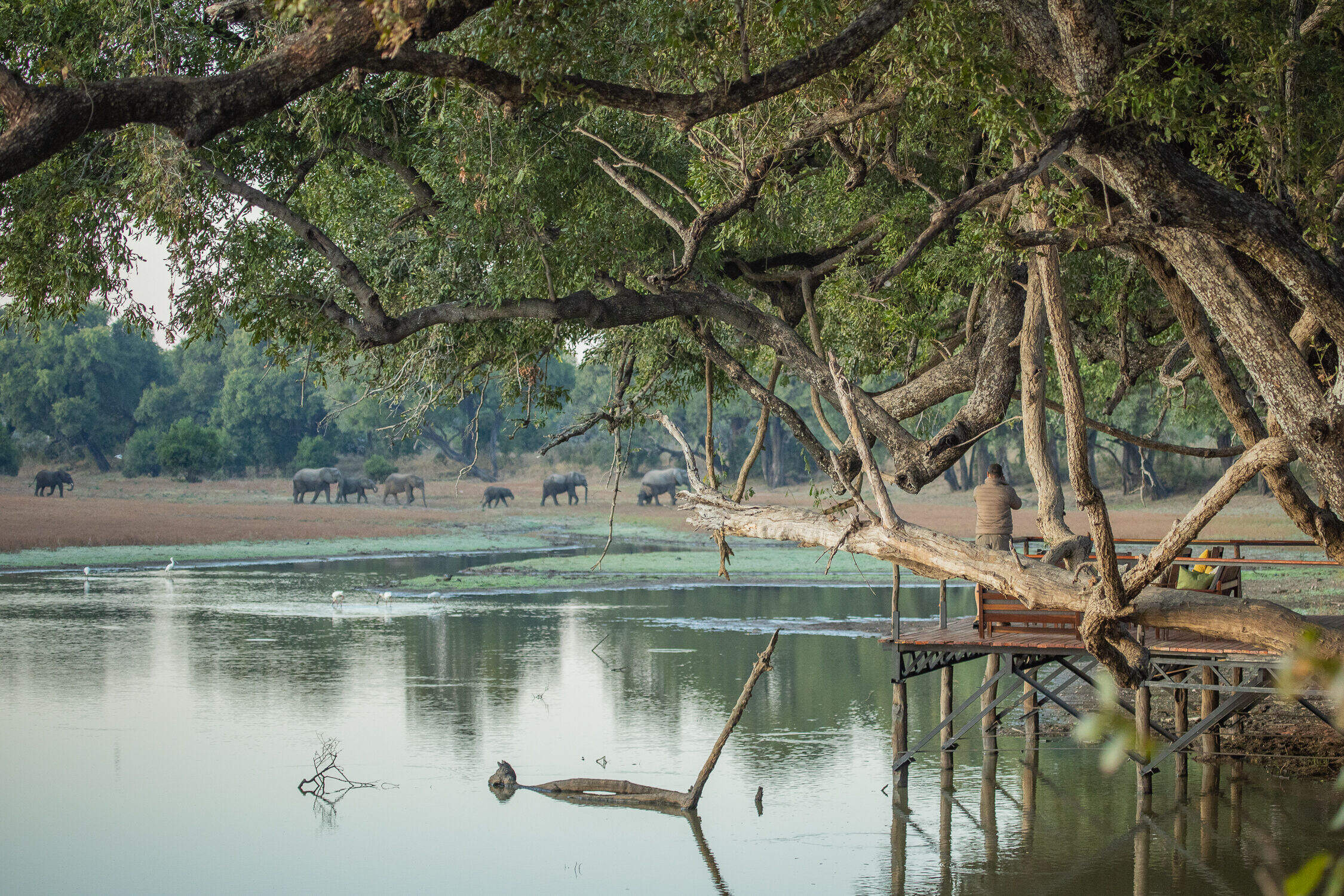
Big Lagoon Camp
Big Lagoon Camp is a great little rustic bushcamp built to high standards that focuses on excellent walking safaris, with the emphasis on top wildlife guides.
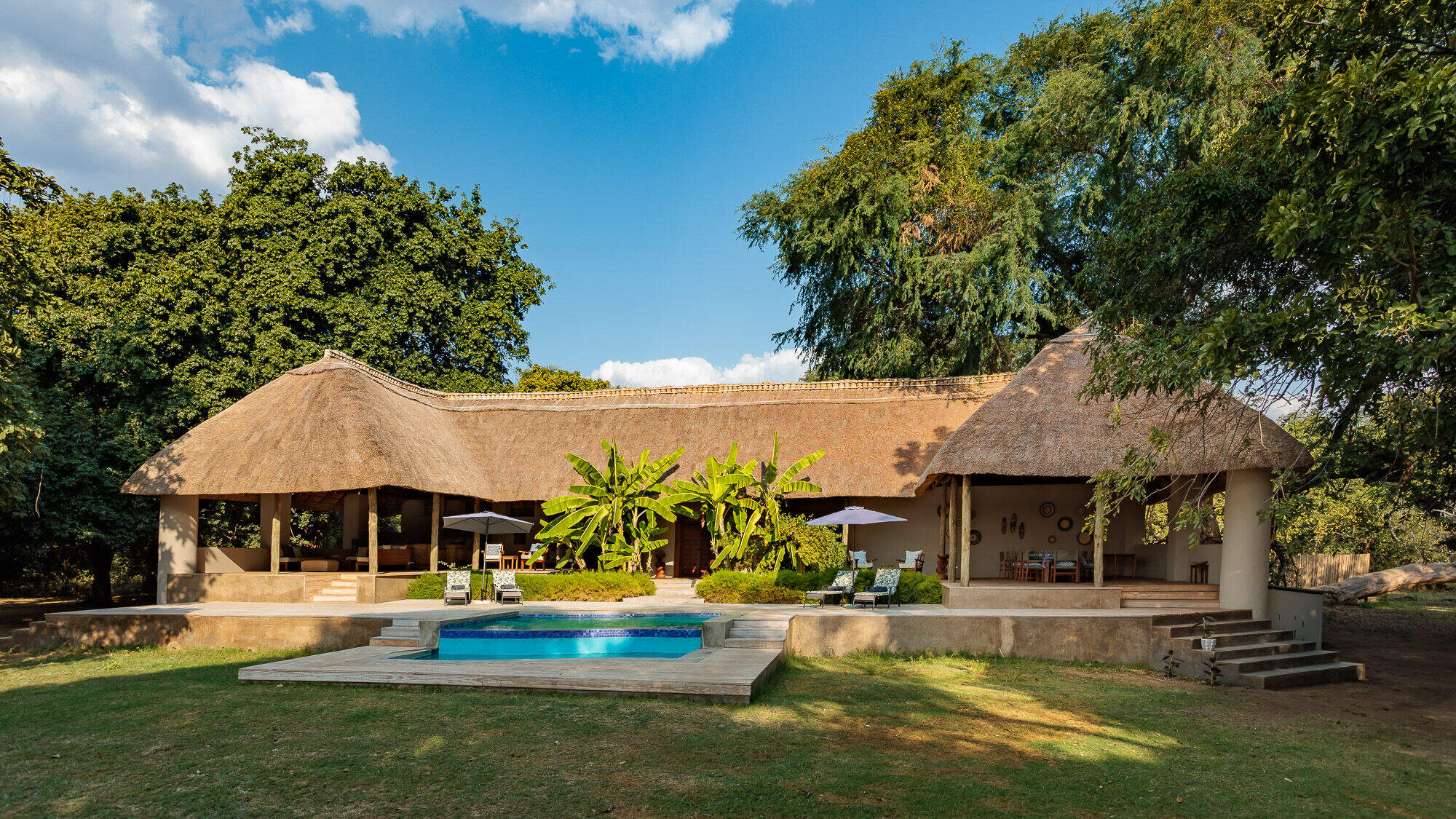
Luangwa River Camp
Luangwa River Lodge is a small and consciously stylish lodge in the Mfuwe area, overlooking the Luangwa River and the South Luangwa National Park beyond – an area renowned for great game.
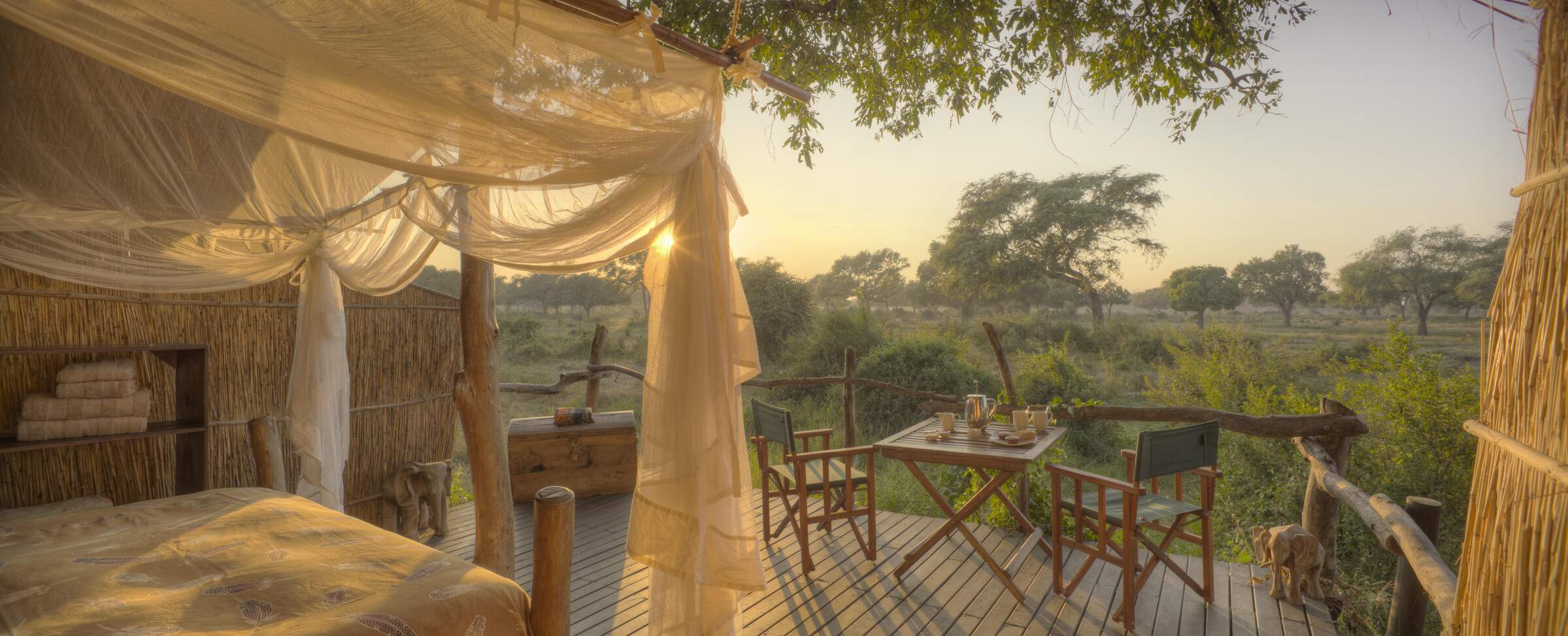
Flatdogs Camp
A relatively big safari camp, Flatdogs offers value for money with great guiding and good food in a comfortable, relaxed setting.
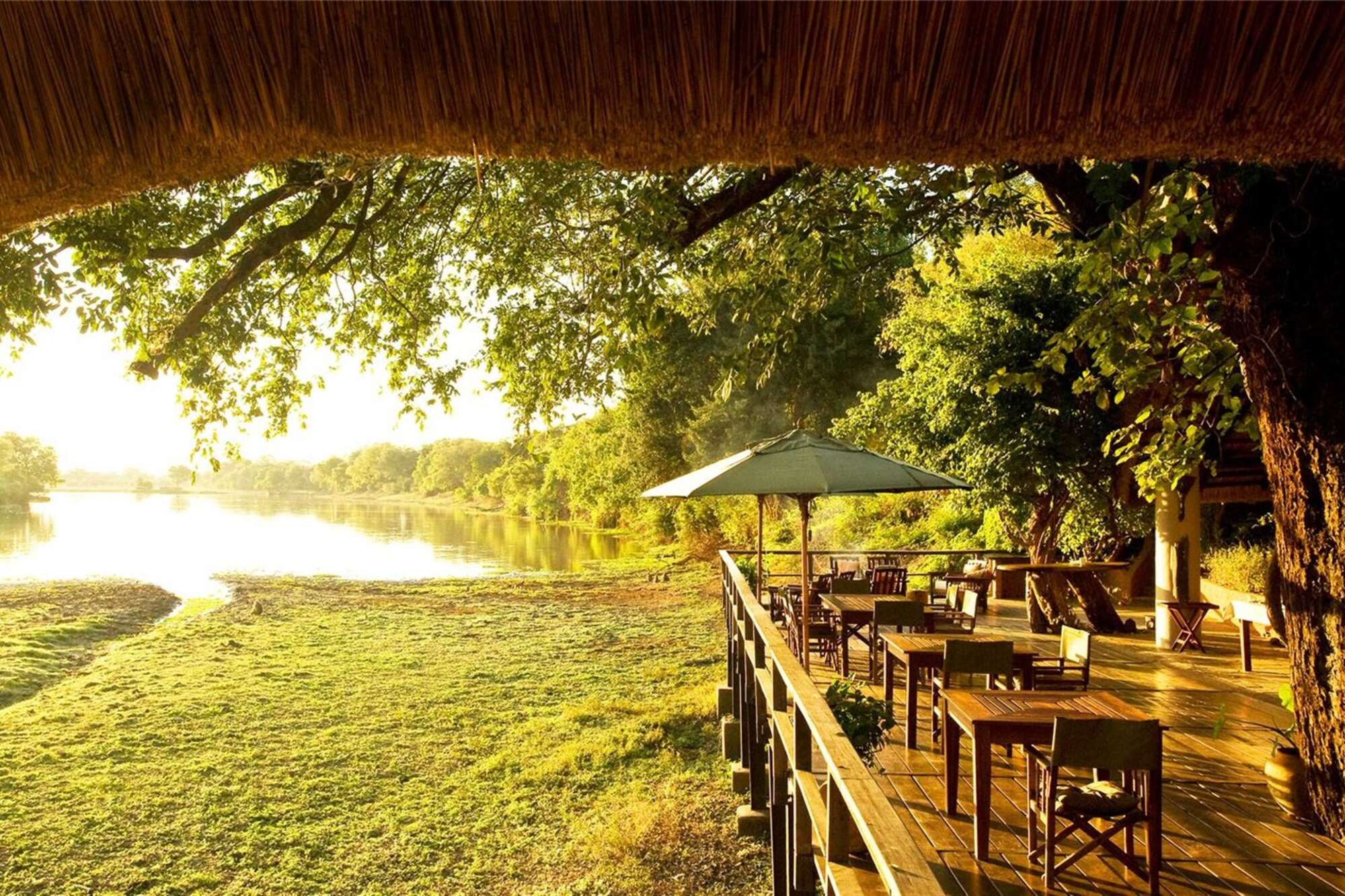
Kapani Lodge
Kapani Lodge is now the main office base for Norman Carr Safaris, one of the Luangwa's oldest safari operations.
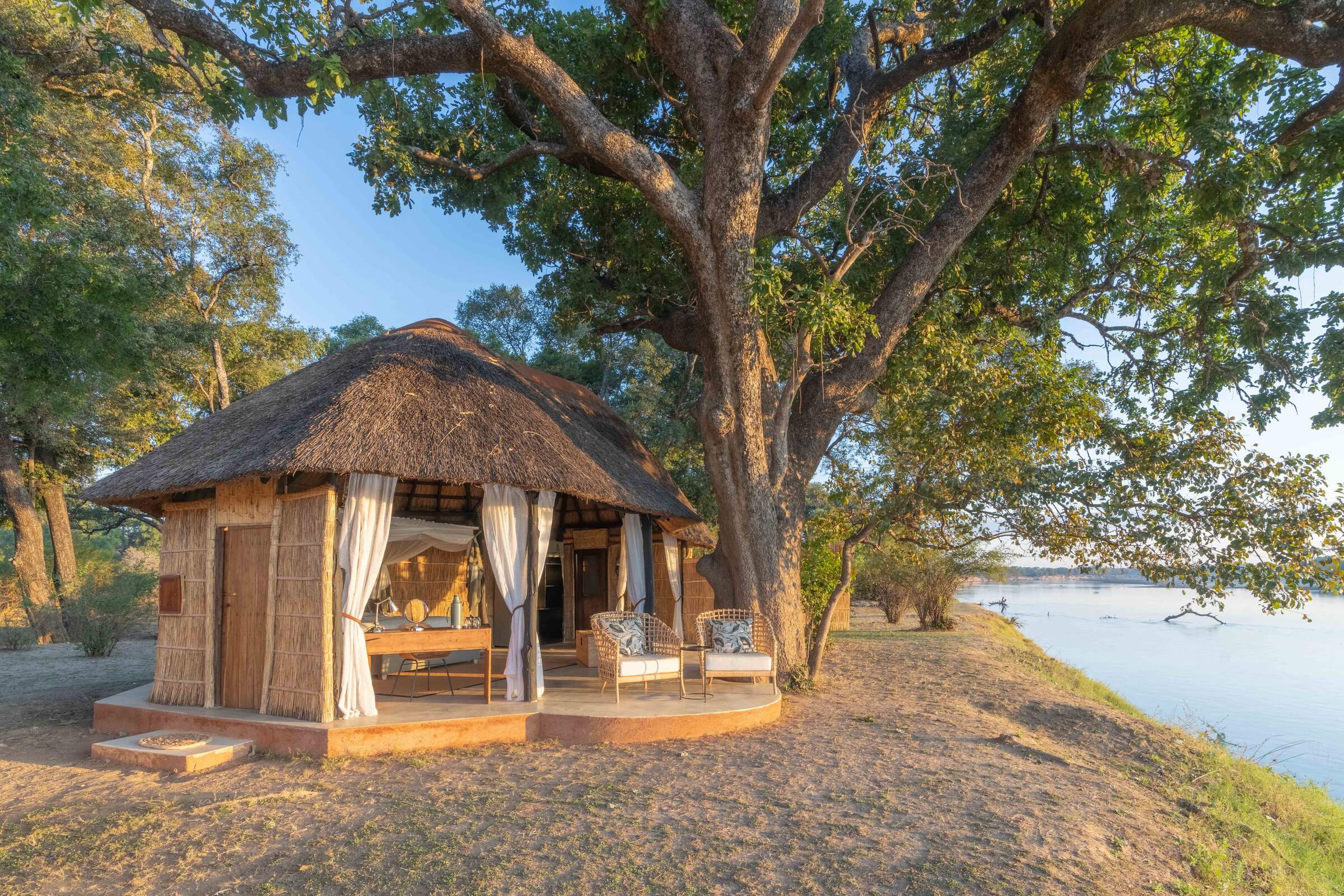
Mchenja Bushcamp
Set in a shady ebony grove on the banks of the Luangwa, Mchenja is a smart tented bushcamp. It combines well with Kakuli and Nsolo – its sister camps with a focus on walking safaris.
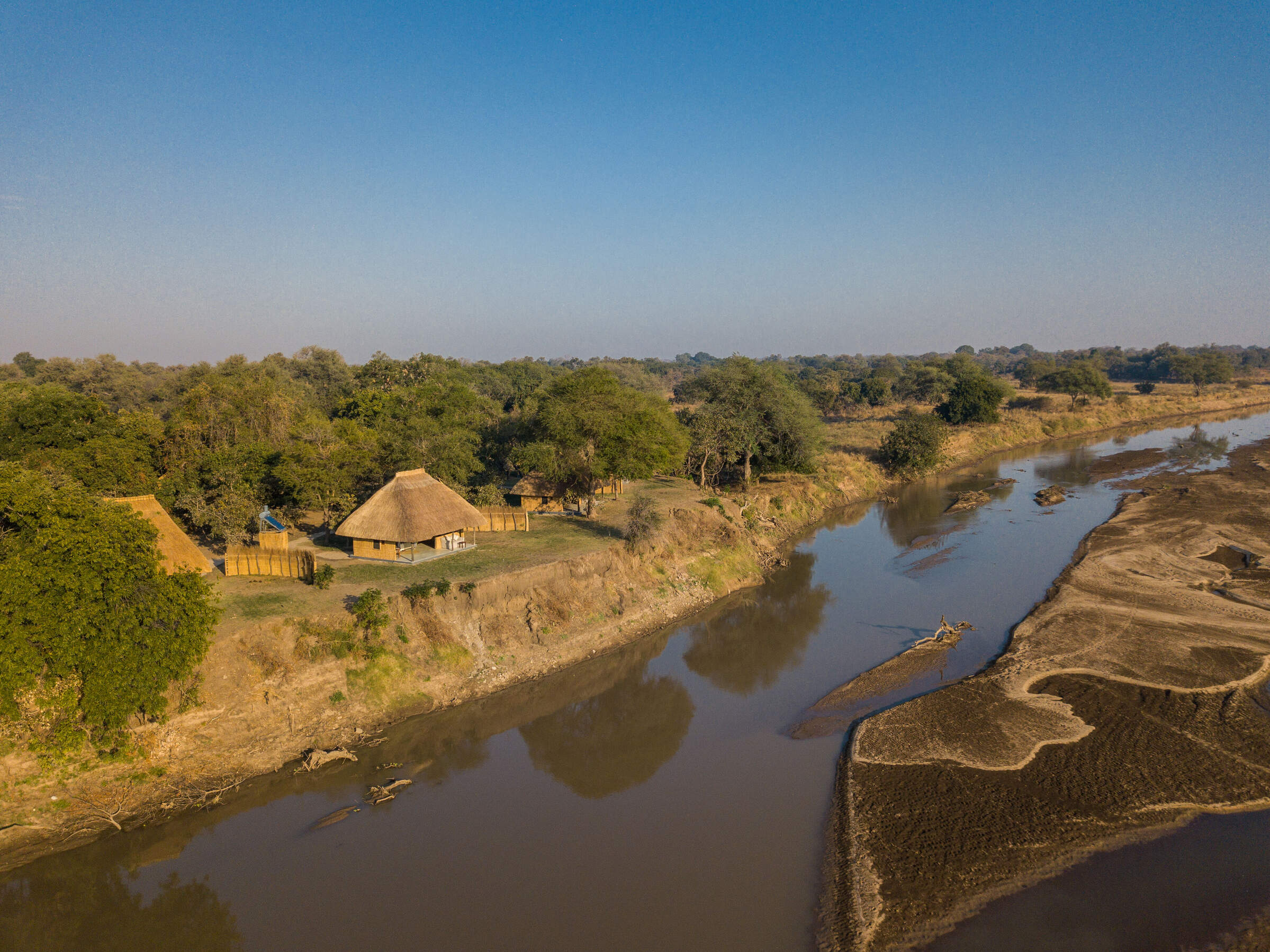
Kakuli Bushcamp
Beside the Luangwa River, Kakuli is a comfortable tented bushcamp offering 4WD safaris and walking safaris – the best of which are camp-to-camp walks linking Kakuli with its nearby sister camps.
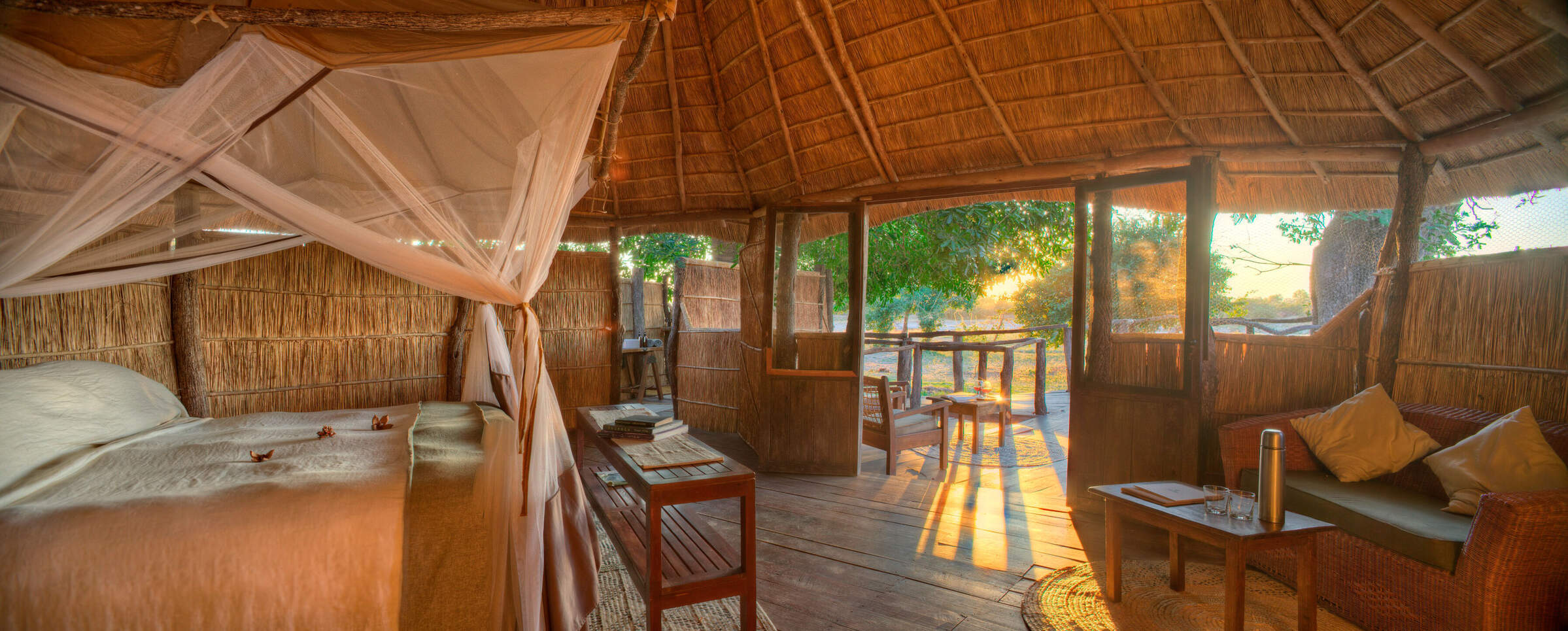
Nsolo Bushcamp
Nsolo is a small, comfortable bushcamp overlooking one or two pools in the usually dry Luwi riverbed. It concentrates on walking safaris in an interesting and diverse area, led by a knowledgeable guide.
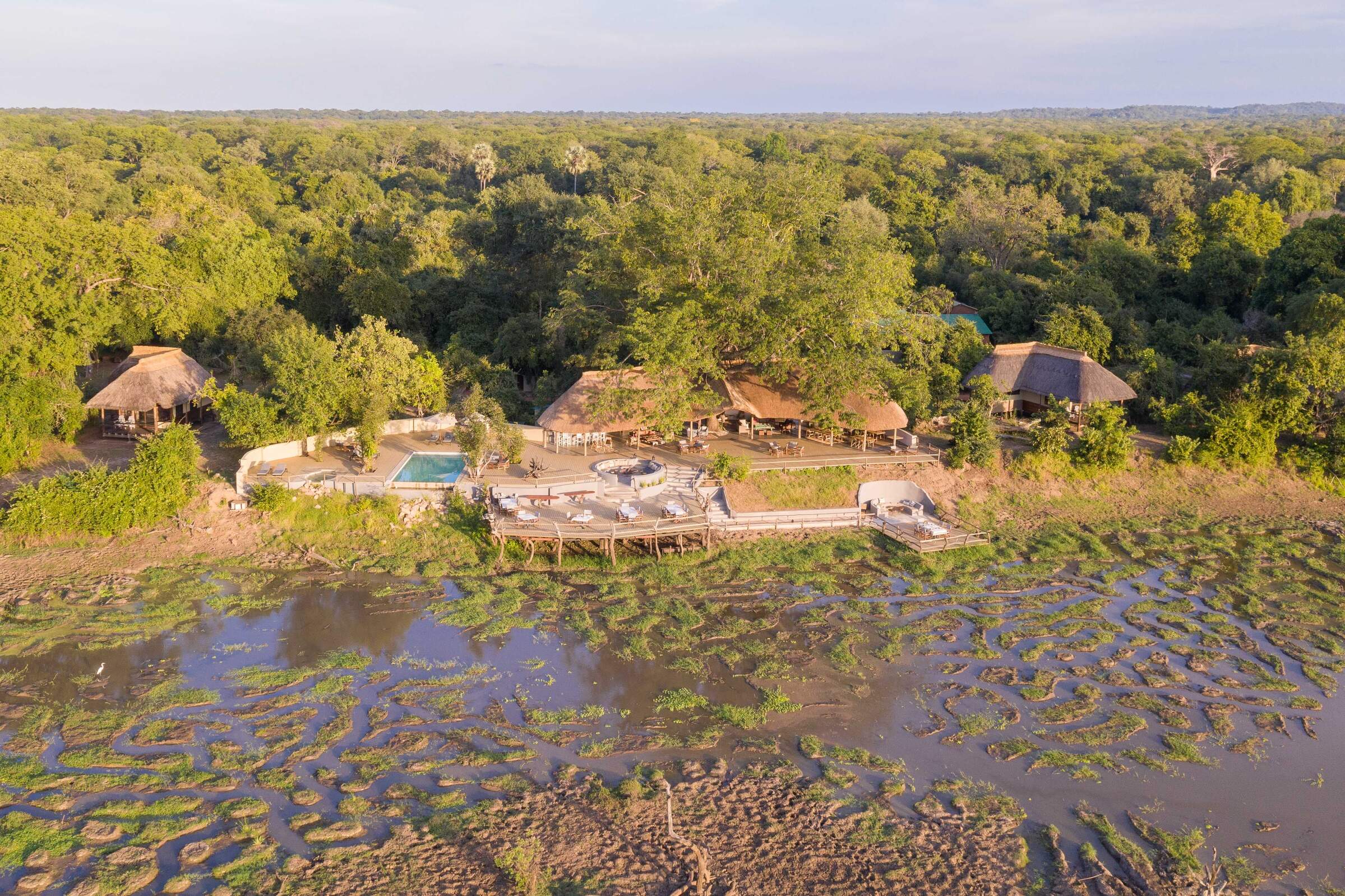
Kafunta River Lodge
Kafunta is a laid-back, friendly and good-value lodge on the outskirts of South Luangwa National Park.
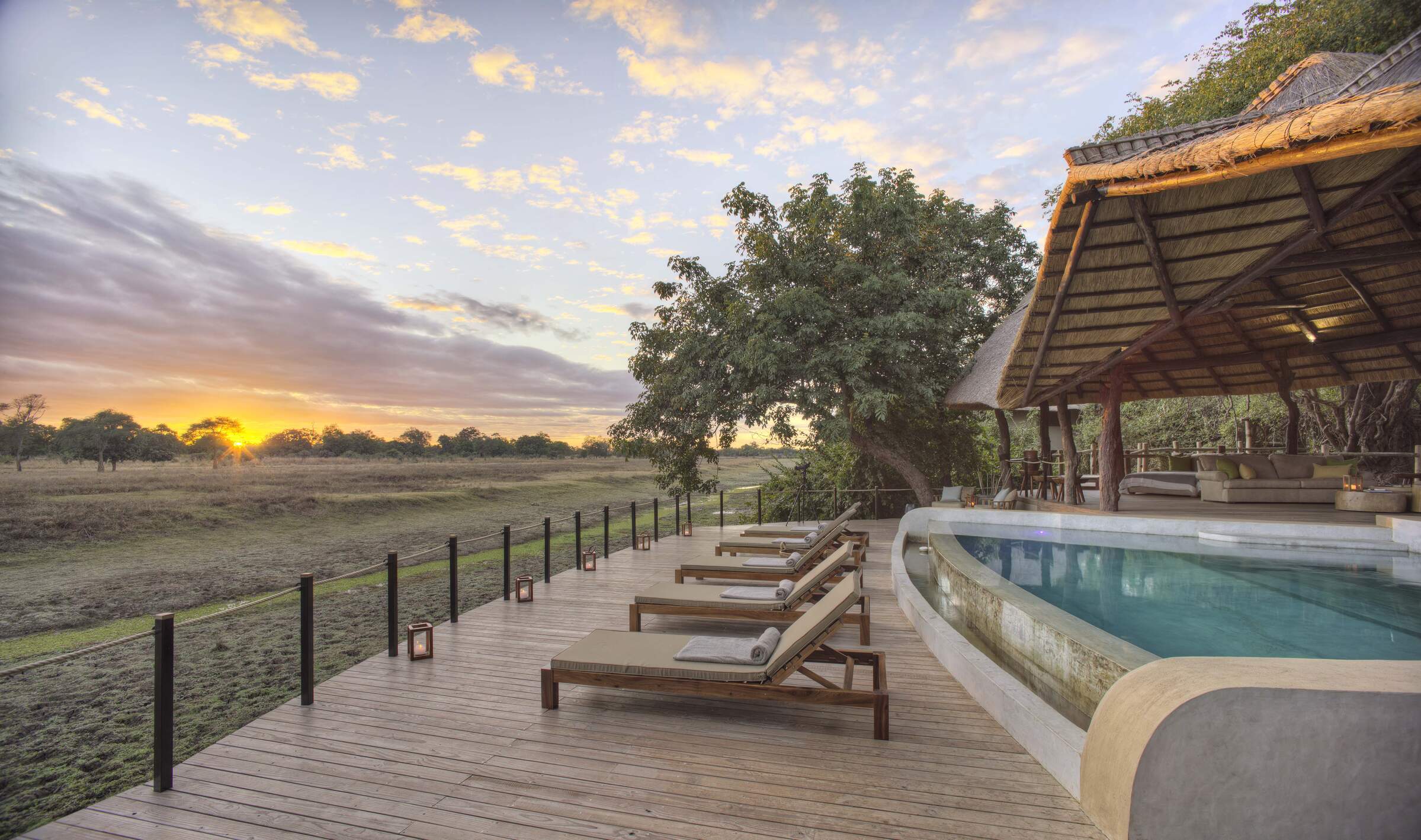
Lion Camp
Lion Camp is an established and comfortable camp with a swimming pool, located near to the game-rich Lion Plain in the northern part of South Luangwa National Park.
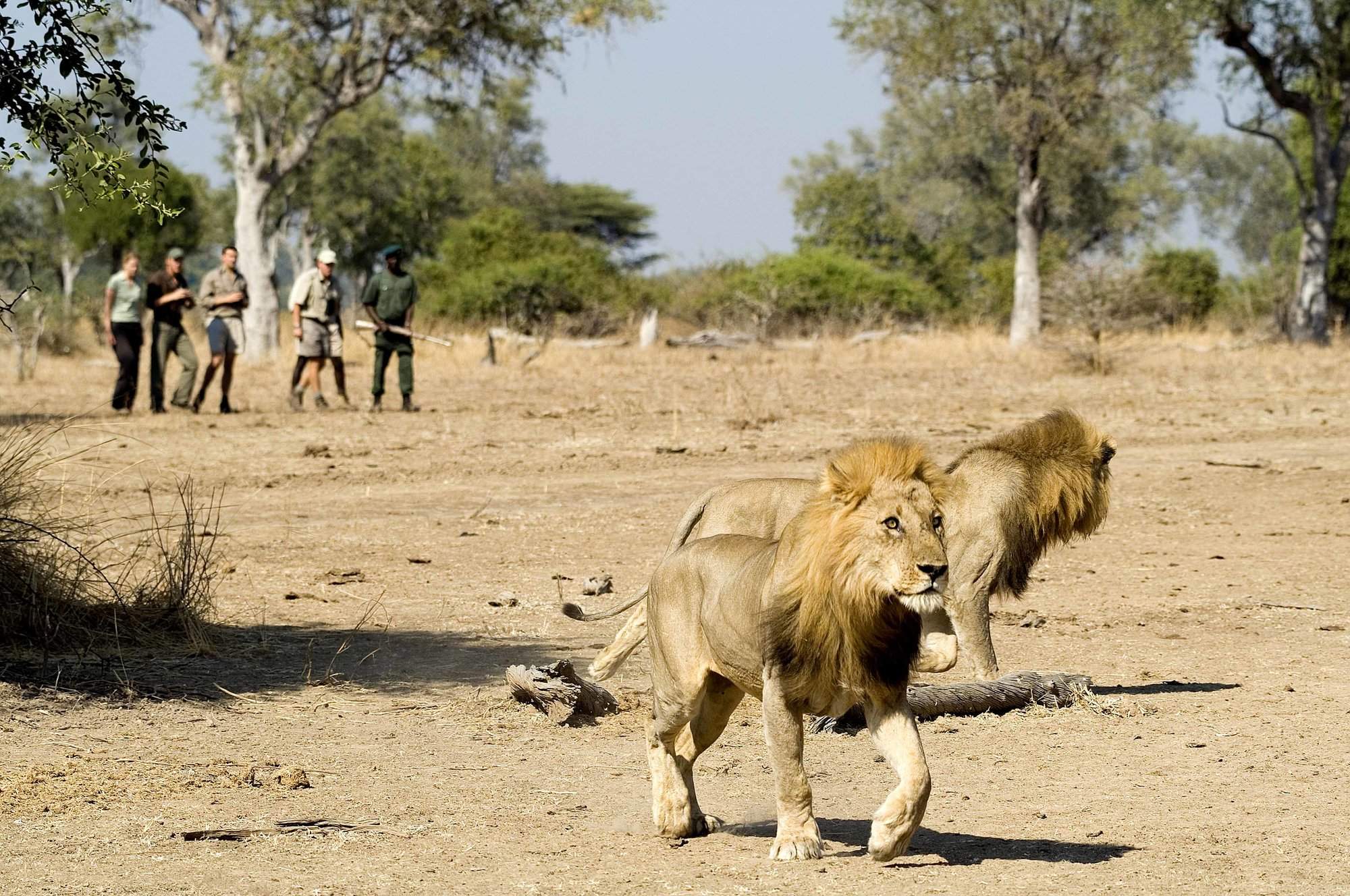
Robin Pope mobile
RPS mobile safari camps are at the heart of their set-itinerary walking safaris in South Luangwa National Park, which start and finish at a permanent camp.
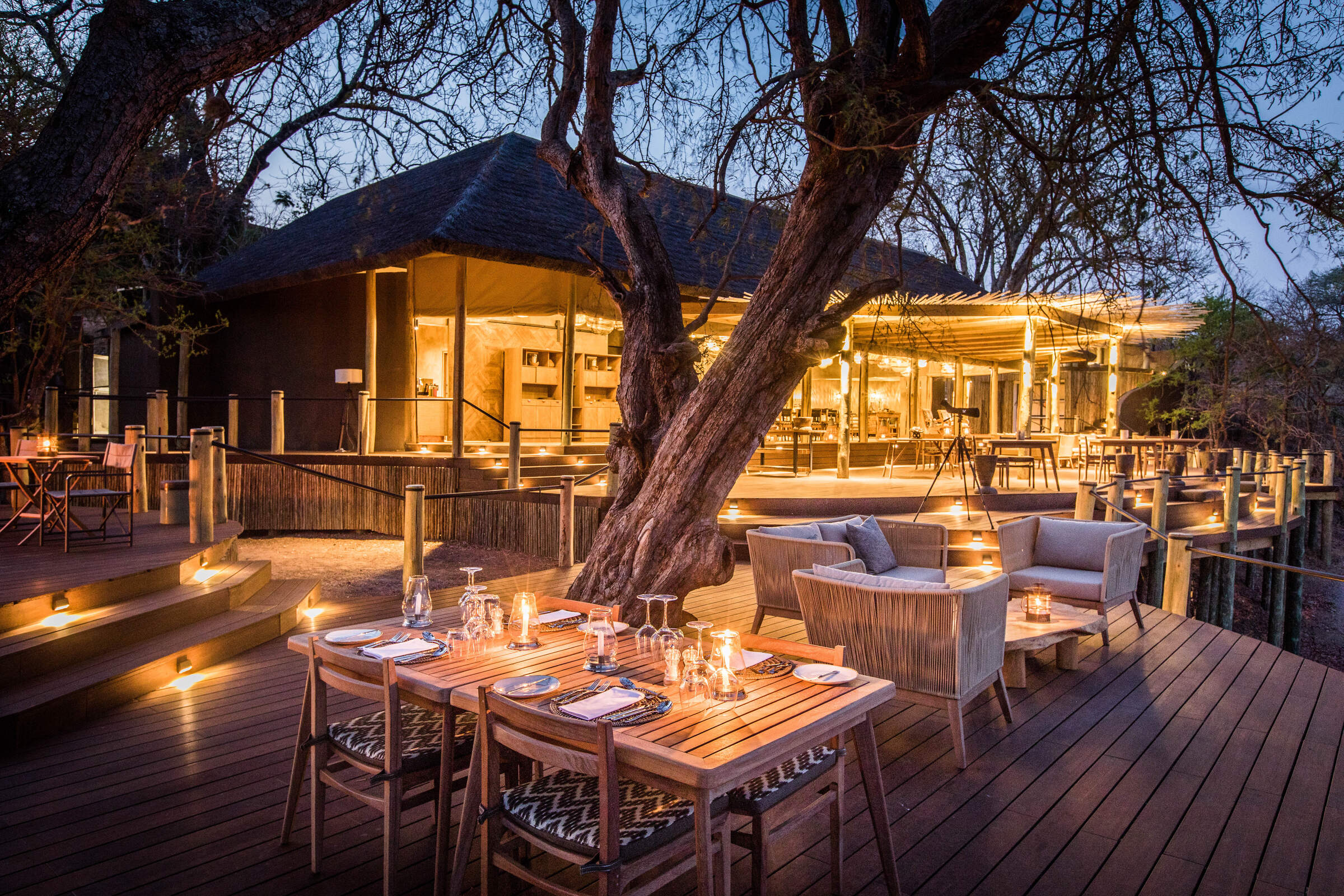
Puku Ridge
Puku Ridge is a luxurious designer camp set in a stunning location, high on a hill overlooking a floodplain within South Luangwa. Explore from here on 4WD safaris and walks.
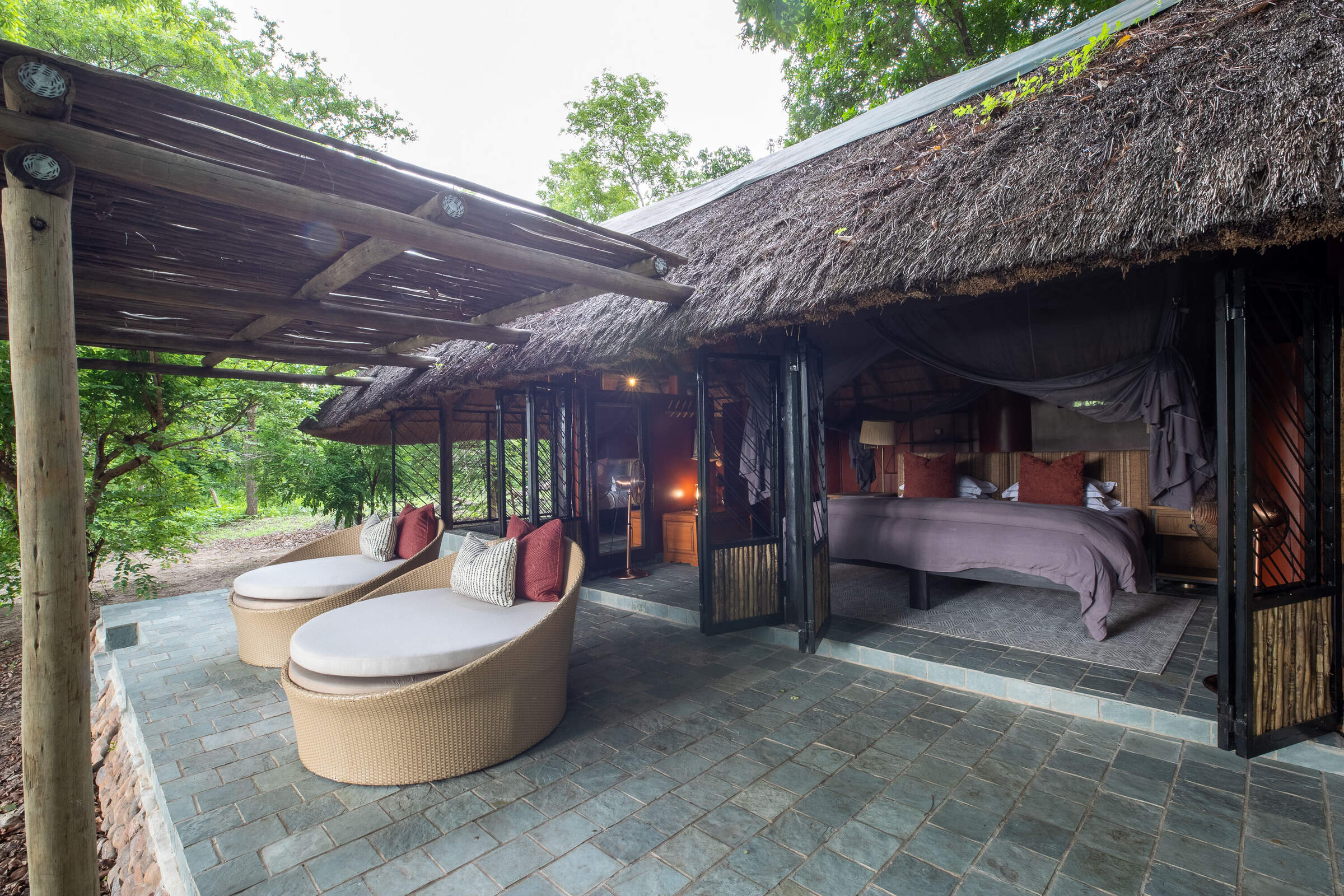
Kapamba Bushcamp
In the remote far south of South Luangwa National Park, Kapamba is a small and very comfortable bushcamp offering good walks and game drives.
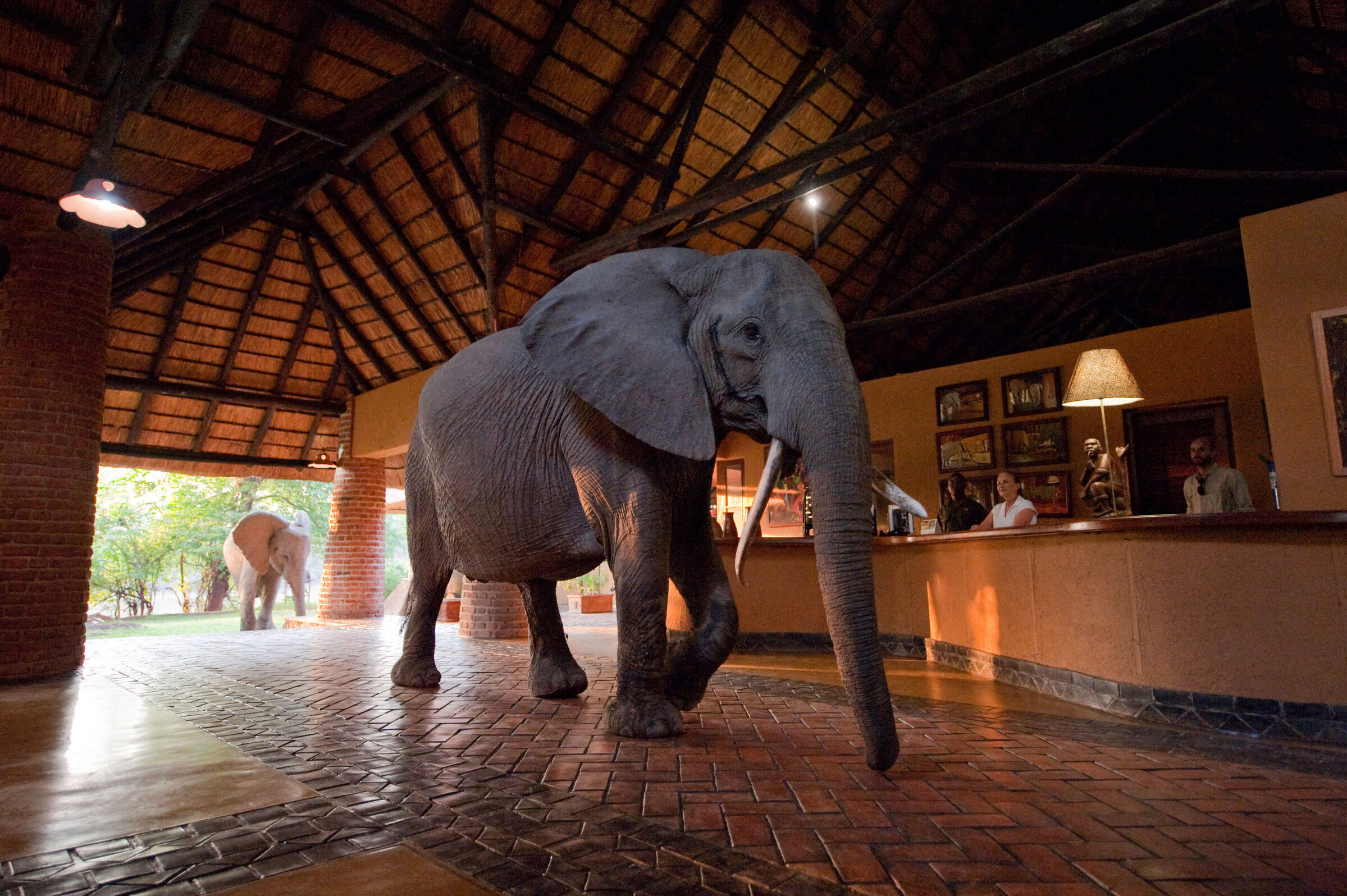
Mfuwe Lodge
In a game-rich area close to the South Luangwa’s main Mfuwe Gate, Mfuwe Lodge is relatively large by park standards, but it’s stylish, modern and family friendly.
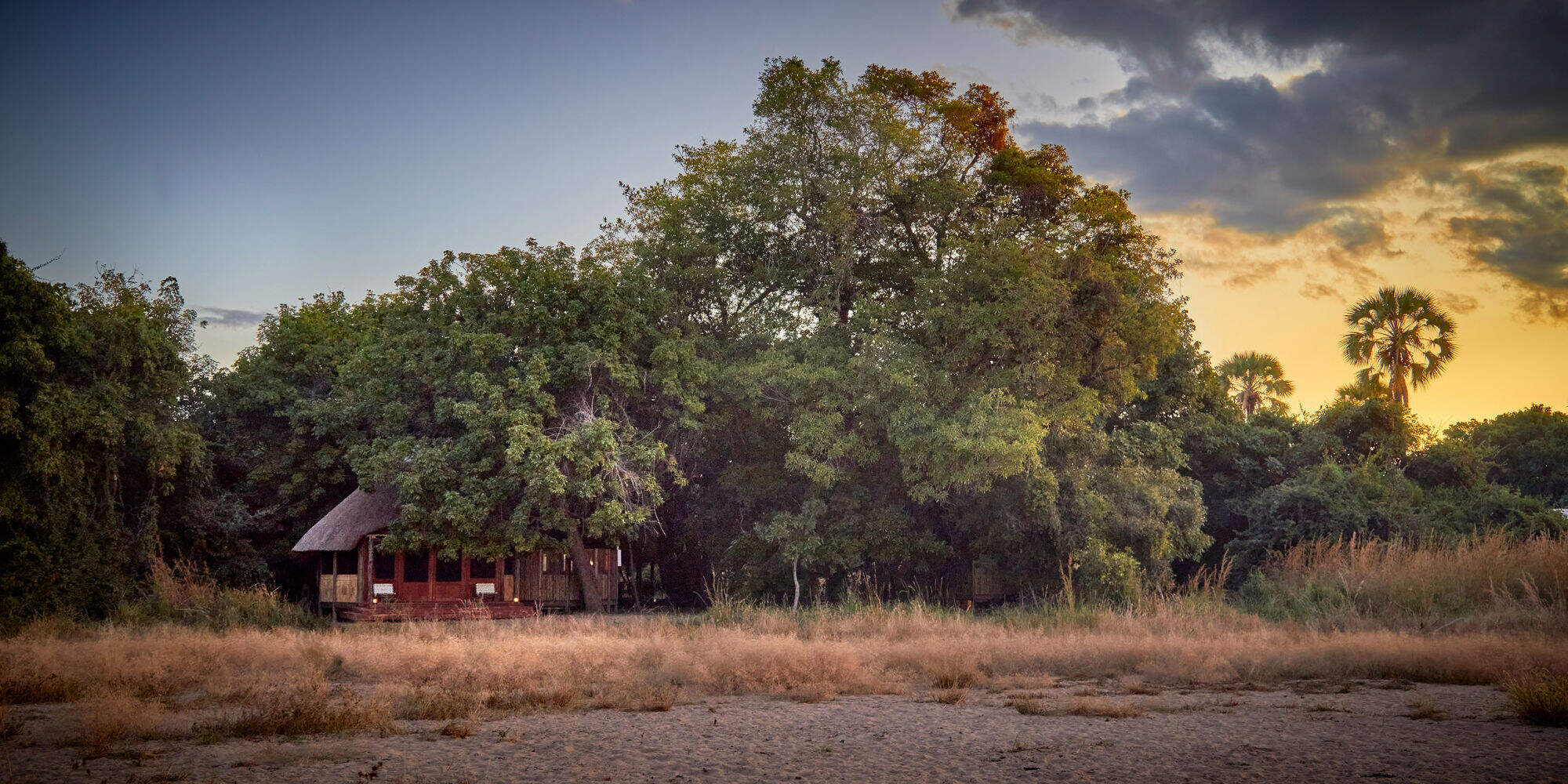
Kuyenda Bushcamp
Kuyenda Bushcamp is a classic bushcamp with particularly delightful hosts and offers top-class walking safaris in South Luangwa National Park.
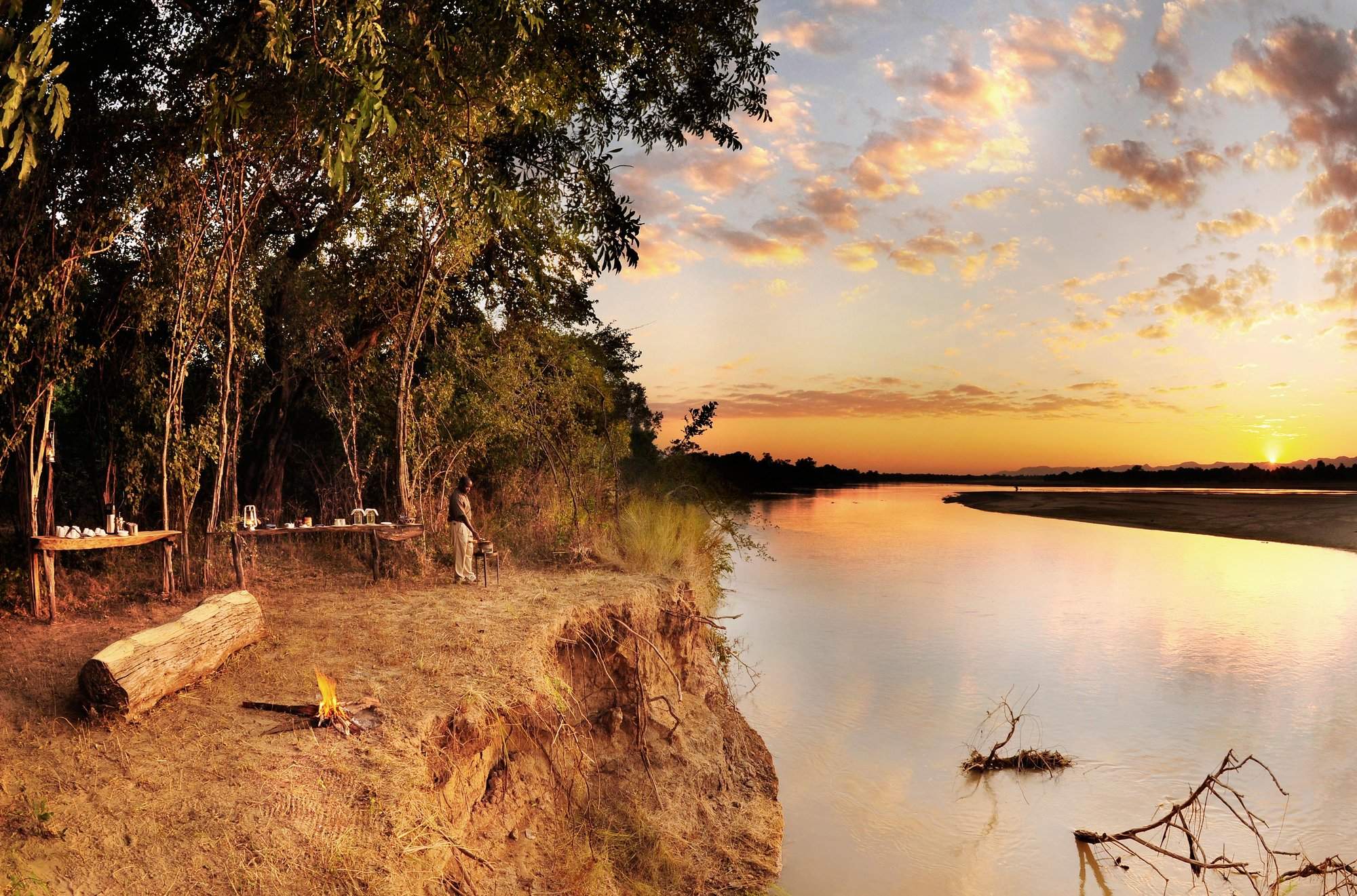
Bilimungwe Bushcamp
A smart bushcamp with four very spacious chalets, Bilimungwe offers interesting walking safaris in pretty riverine woodland, as well as day and night safari drives.
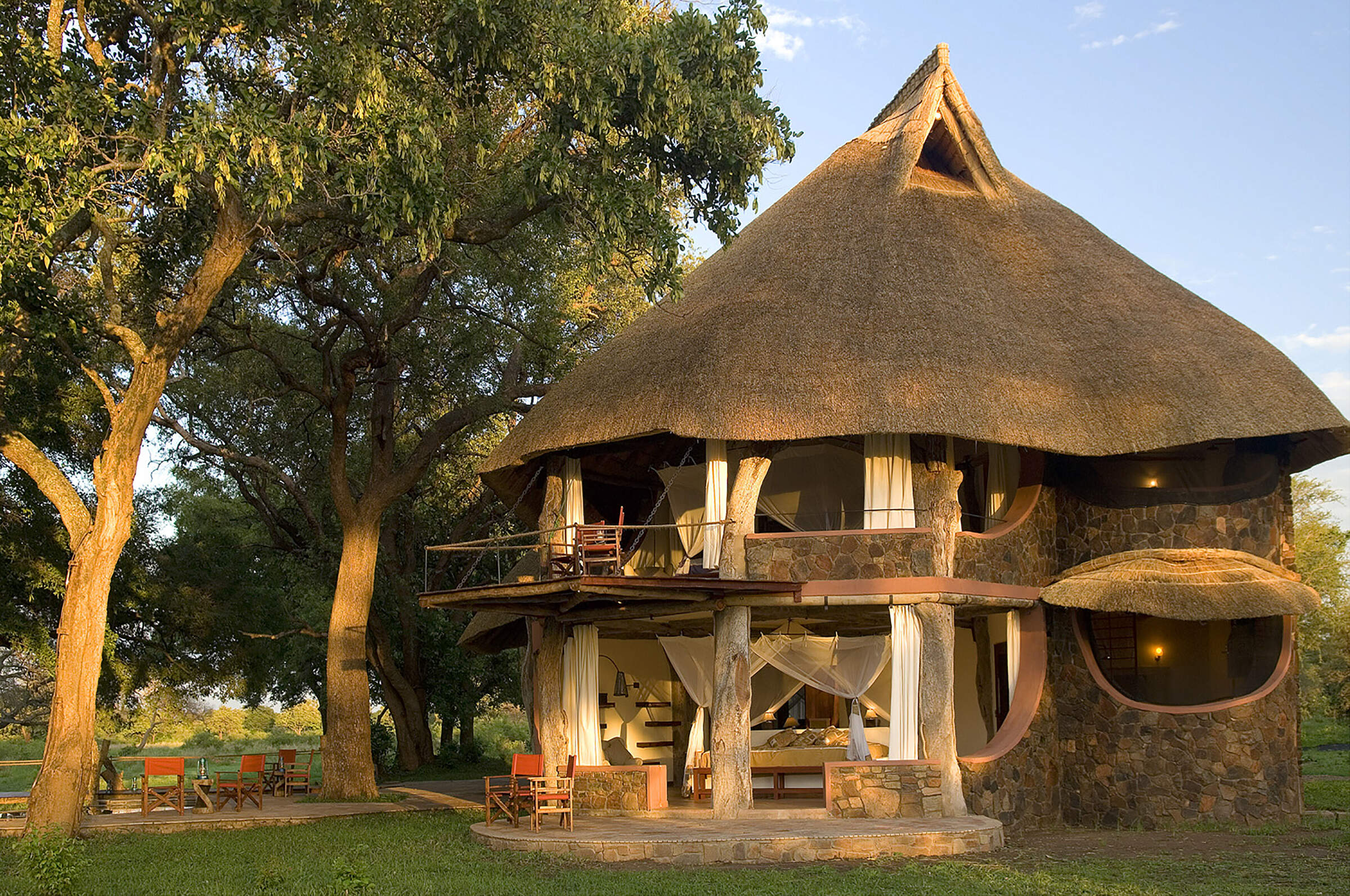
Luangwa Safari House
Luangwa Safari House is a vast and very smart four-bedroom house specifically designed for families and small groups, and offering an exclusive and flexible safari experience.
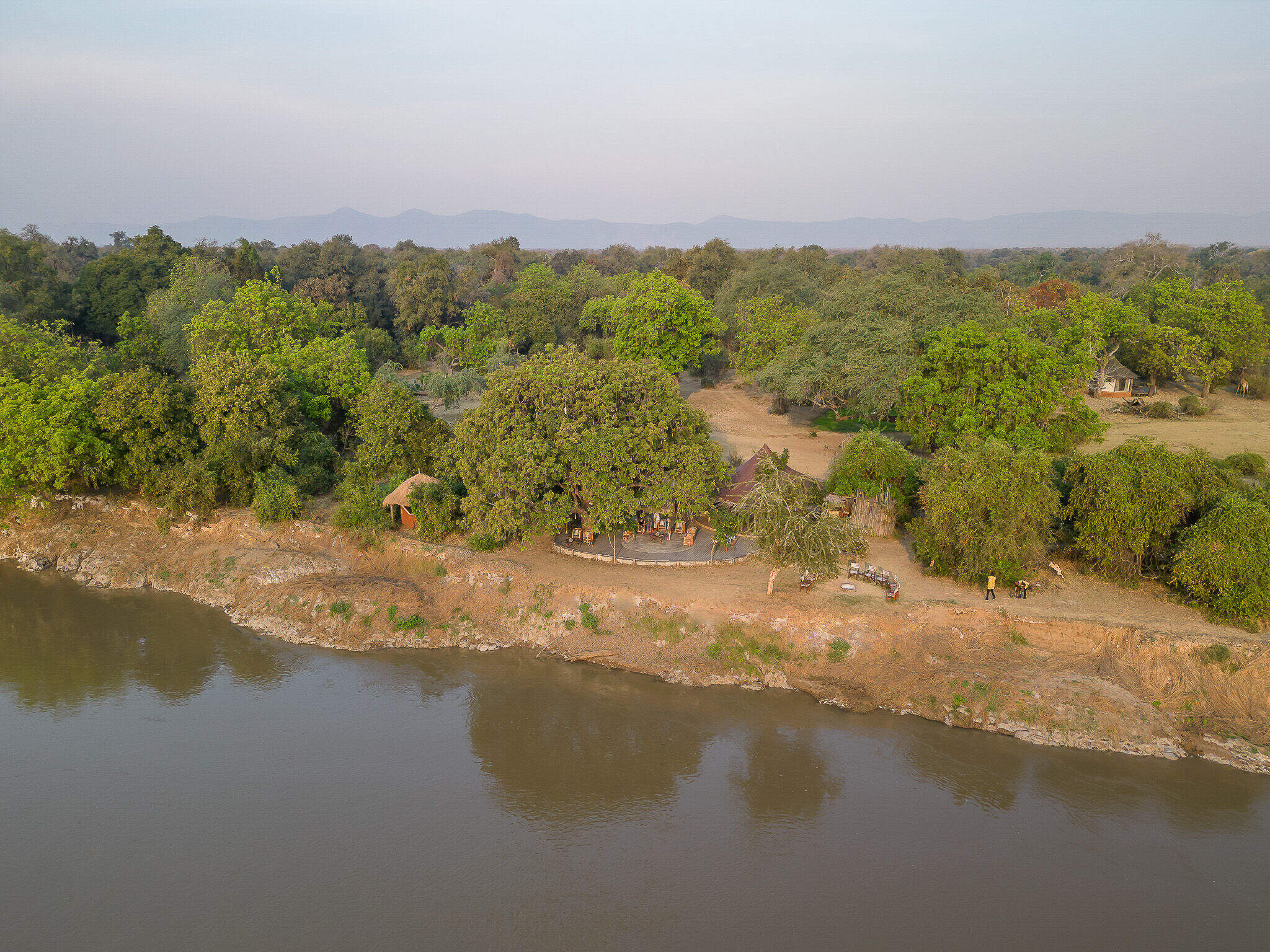
Three Rivers Camp
In the remote far south of South Luangwa National Park, Three Rivers Lodge sits at the confluence of three of the valleys rivers.
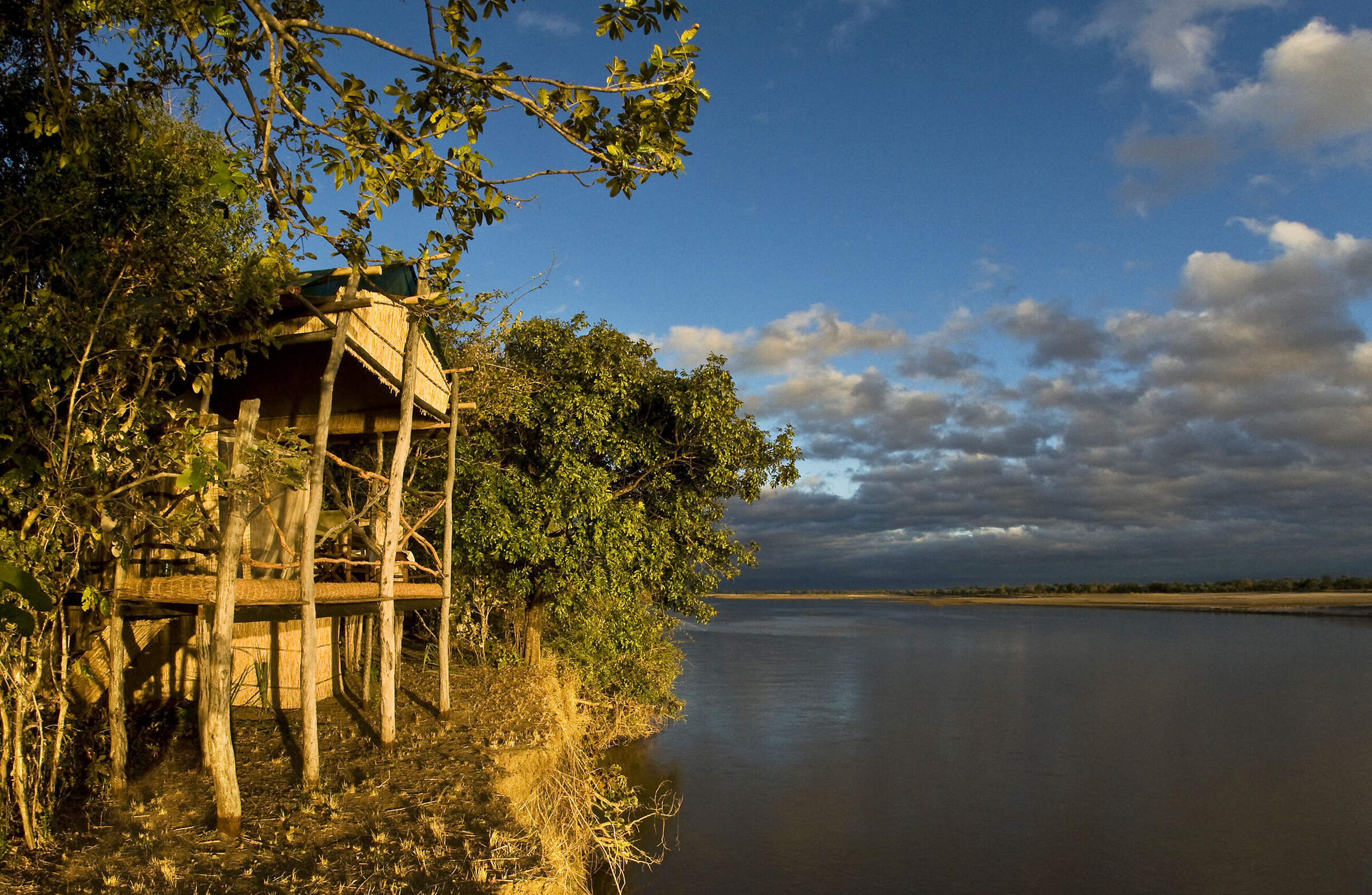
Island Bush Camp
Island Bushcamp is a good-value, rustic, walking-only camp, in arguably one of the most remote parts of the South Luangwa, well away from all other camps.
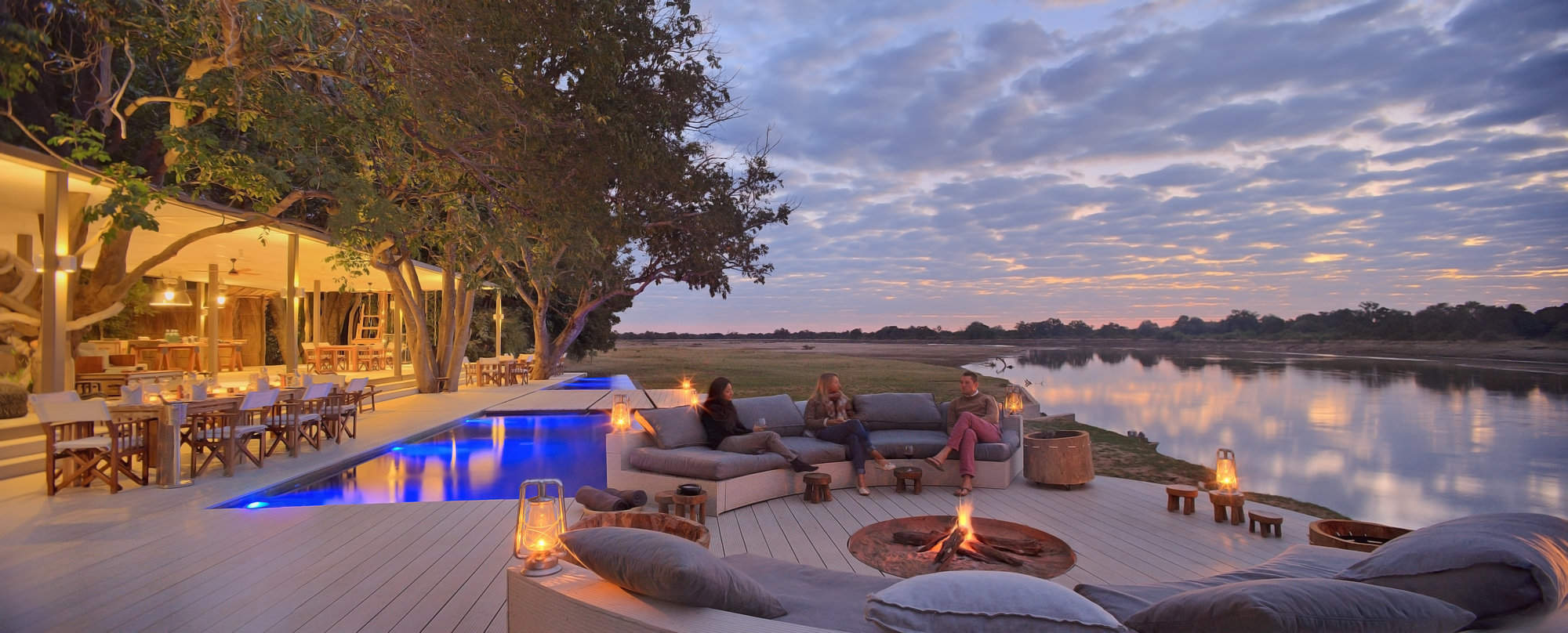
Chinzombo
Opened in early June 2013, Chinzombo offers luxurious and stylish accommodation with very high levels of service and excellent guiding.
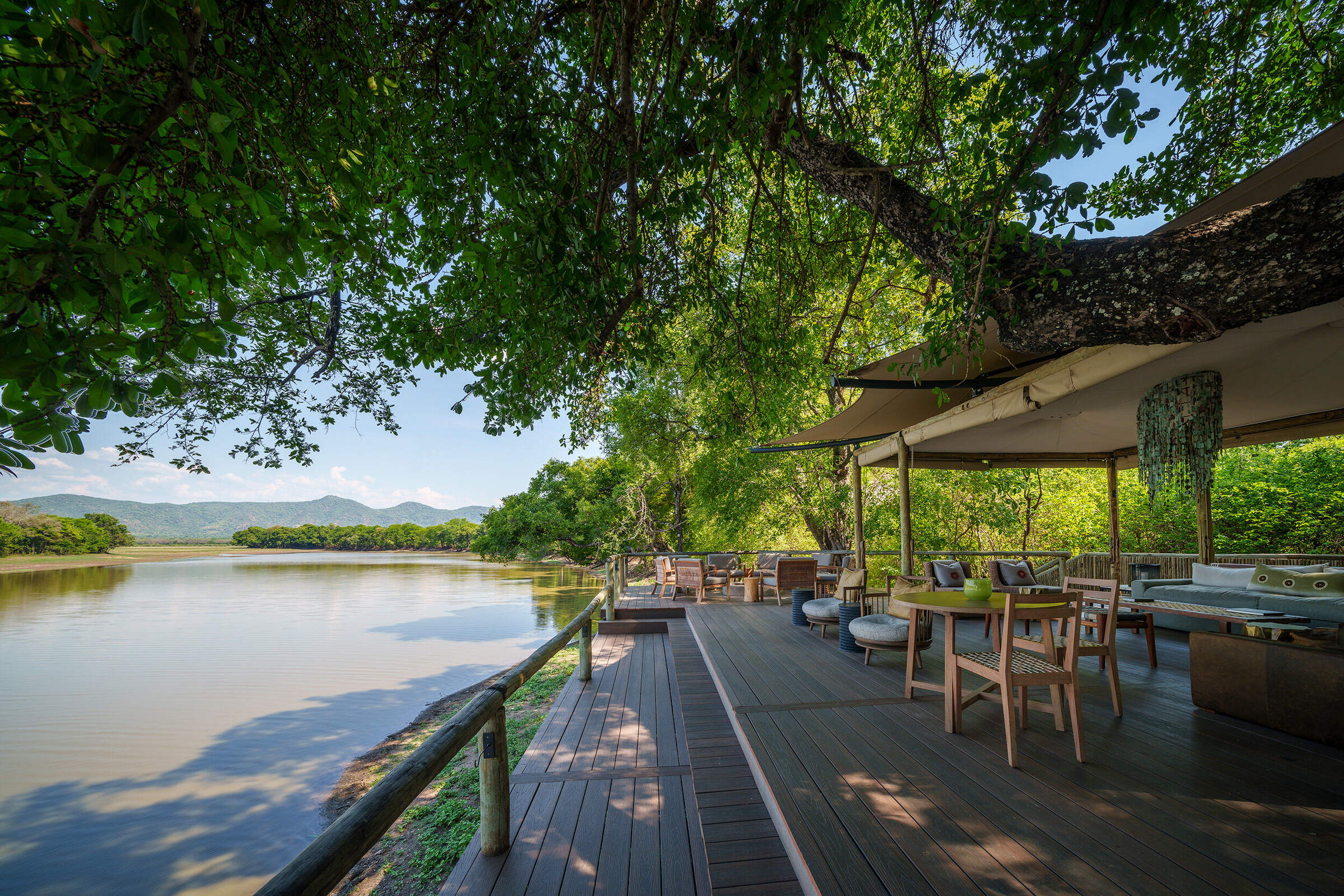
Chindeni
Chindeni Bushcamp is a very modern and minimalist camp, which is a far cry from your traditional bushcamp and unlike most of the other camps in South Luangwa.
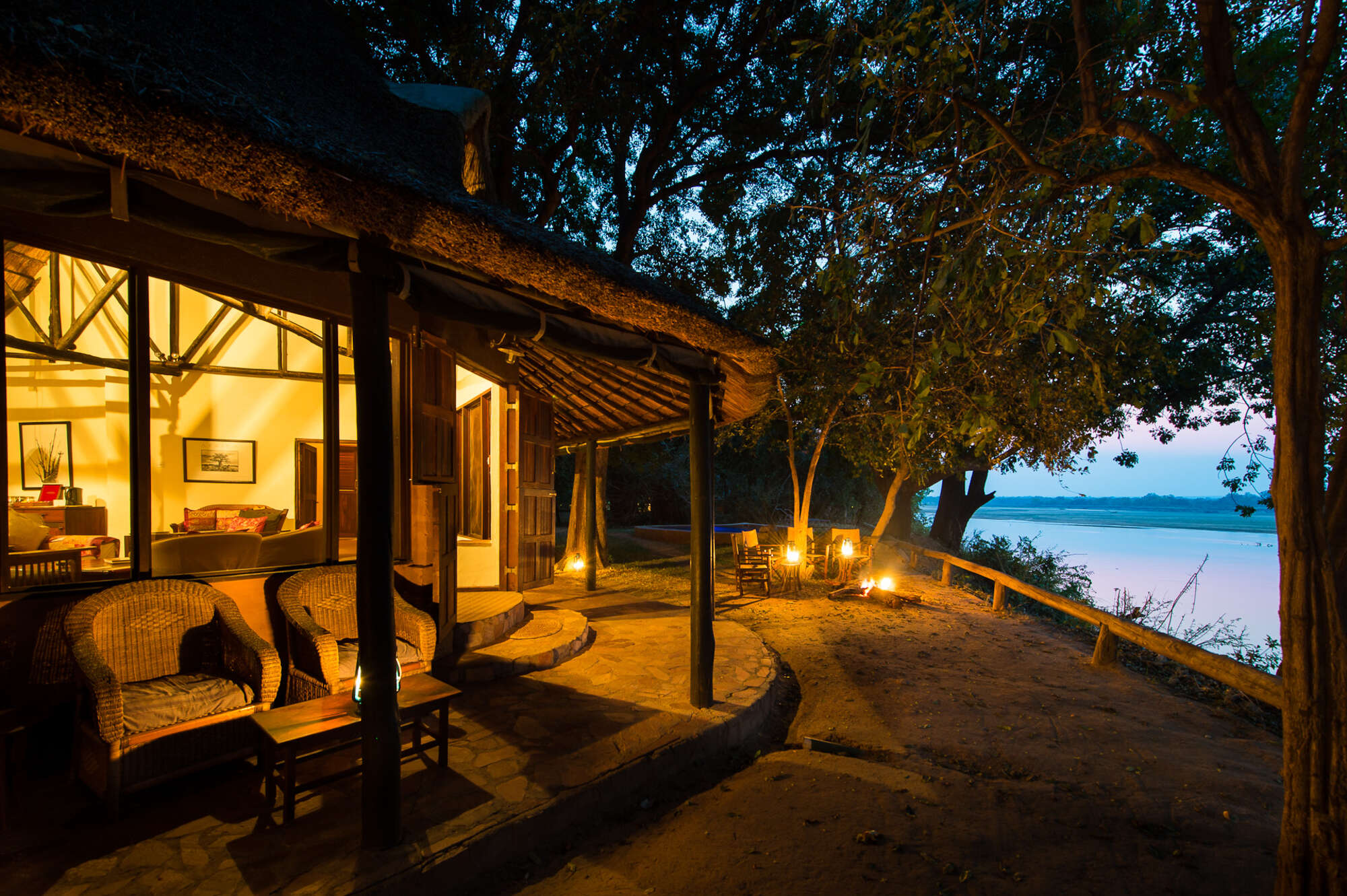
Robin's House
With your own expert guide, private vehicle, chef and valet, the two-bedroom Robin's House offers an exclusive, flexible safari experience – and is open year round.
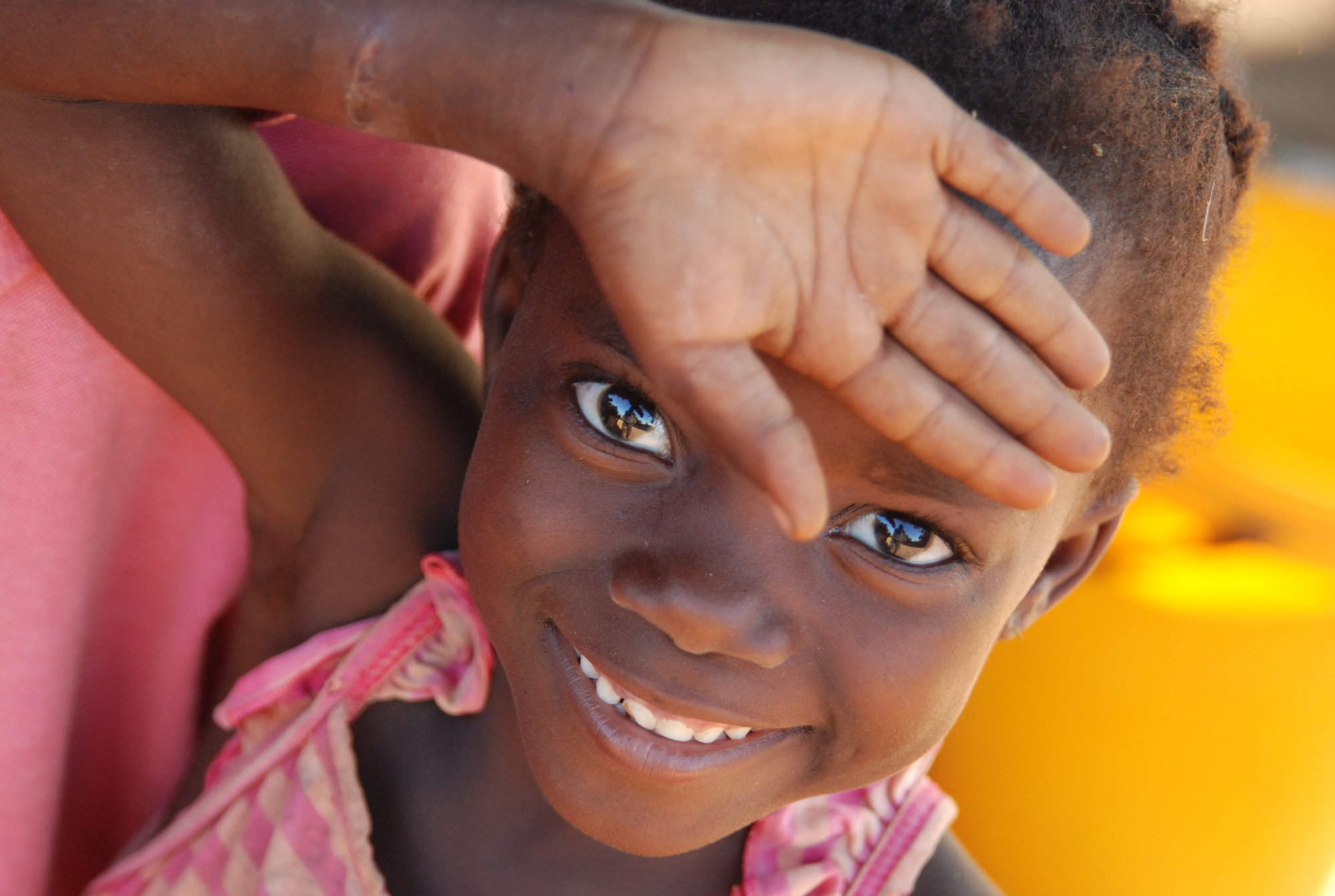
Kawaza Village
Kawaza Village – beside the South Luangwa National Park, offers guests the rare opportunity to appreciate local village life. Visit for a few hours or stay overnight.
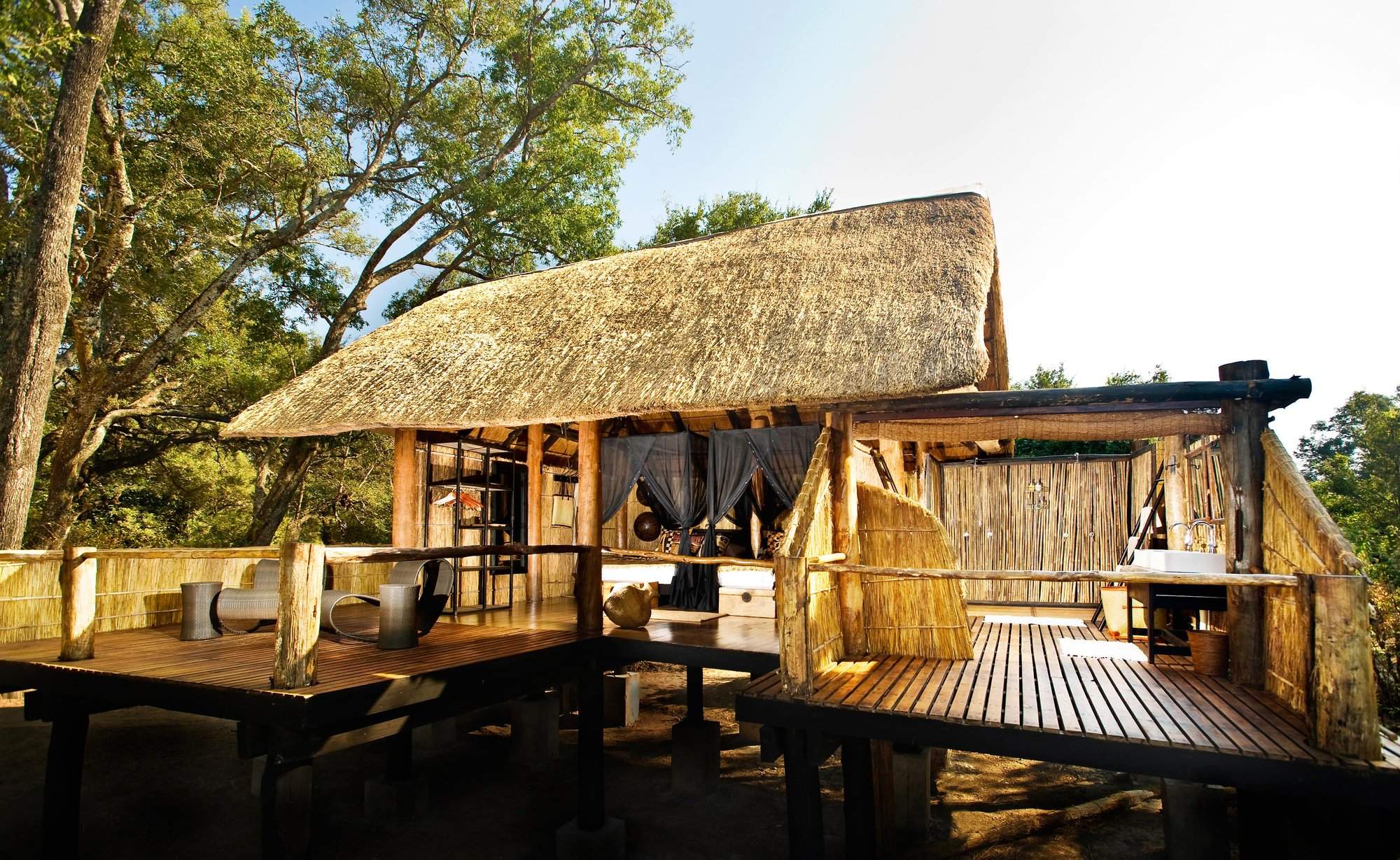
Chamilandu Bushcamp
A comfortable little bushcamp, Chamilandu has a picturesque setting by the Luangwa River, in an area with a range of habitats to explore on foot and by 4WD.
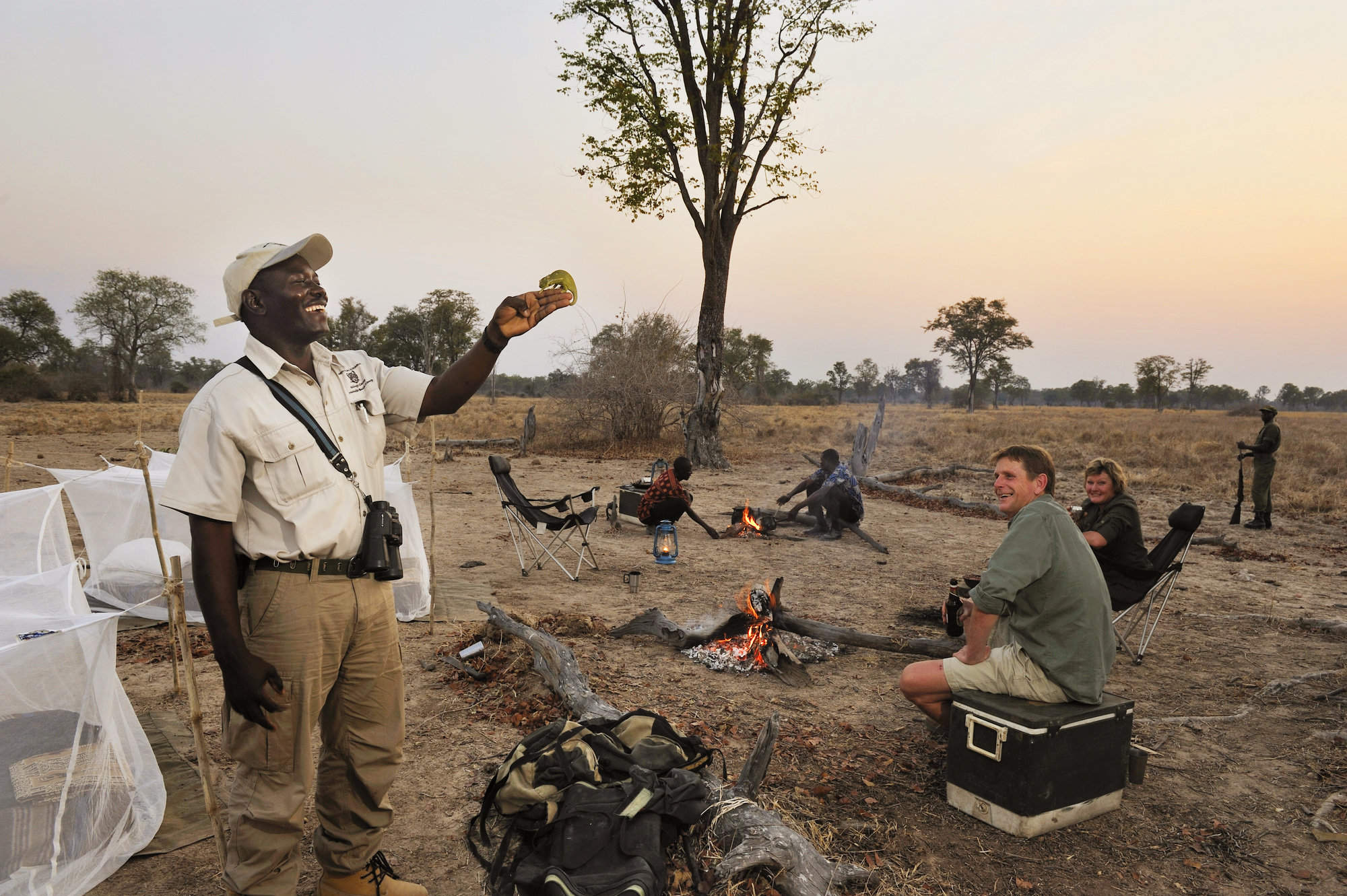
Mwamba Camp-out
The Mwamba-Camp Out allows you to have an incredibly adventurous night in the bush, sleeping under mosquito nets with activities led by some of the best guides in Zambia.
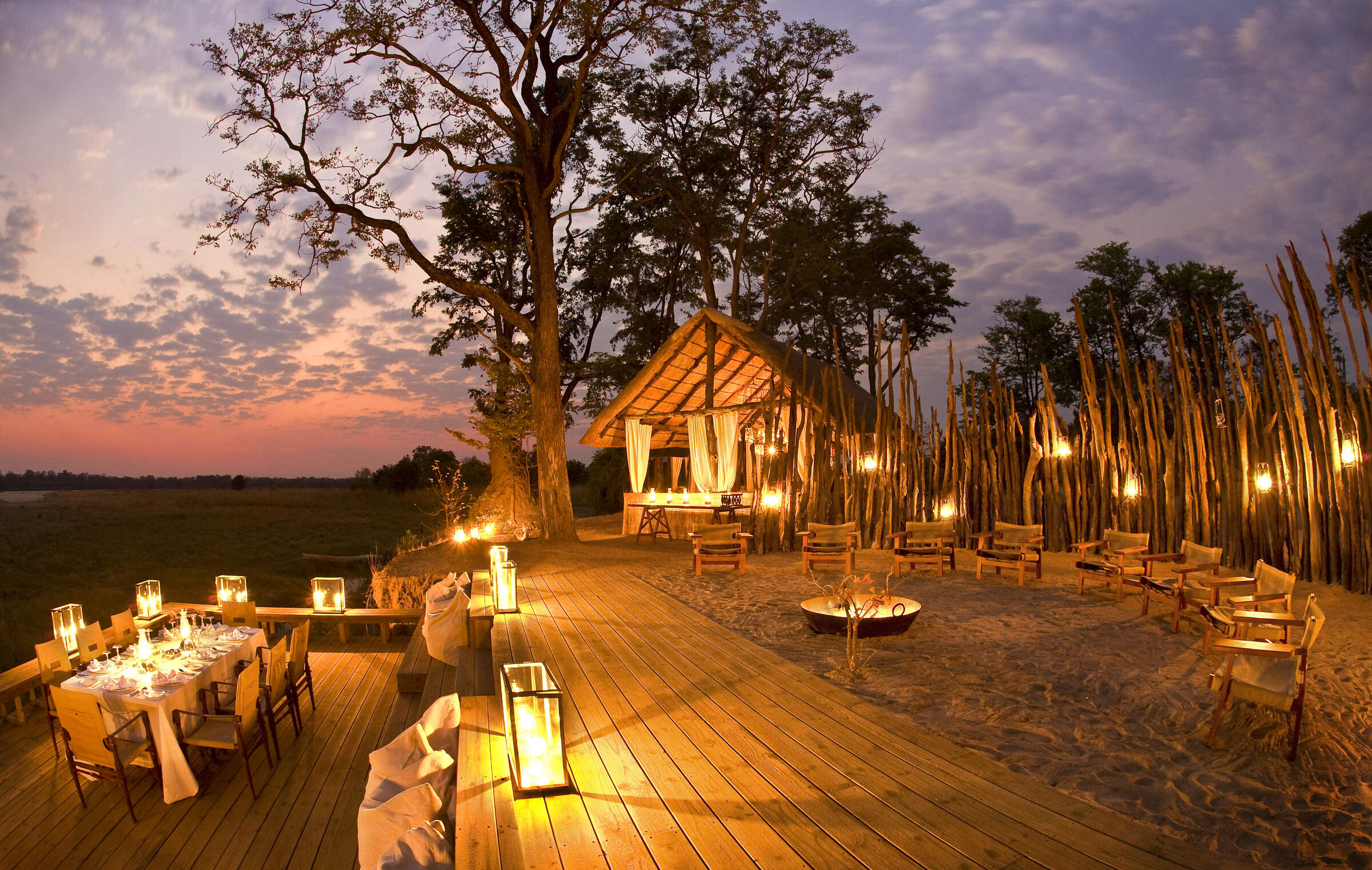
Zungulila
Zungulila is a small, comfortable tented bushcamp with an emphasis on walking safaris, in the remote southern section of the South Luangwa.
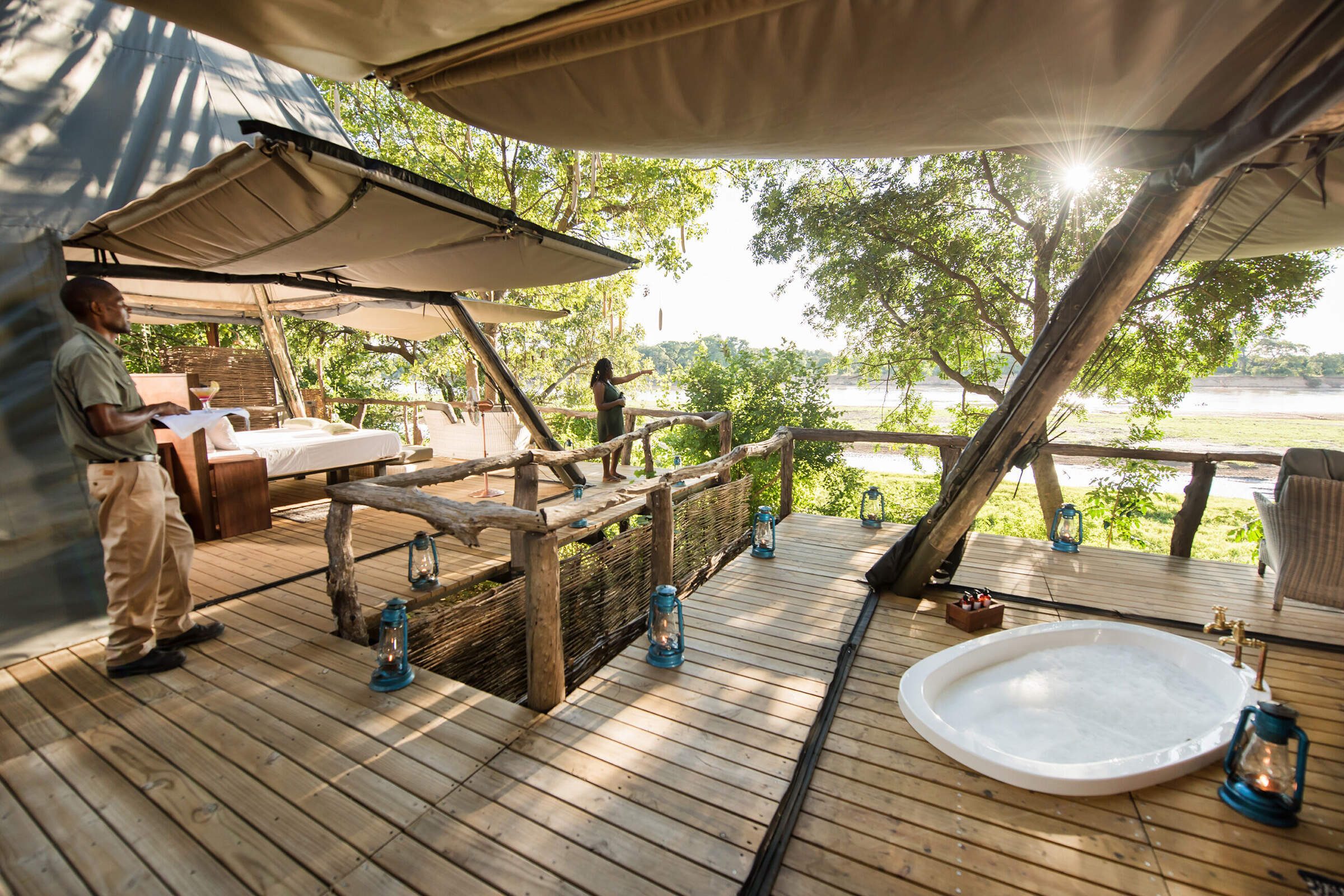
Shawa Luangwa
Opened in June 2021, Shawa Luangwa Camp is a small, intimate and rustic camp, with a good location in a remote section of the South Luangwa National Park.
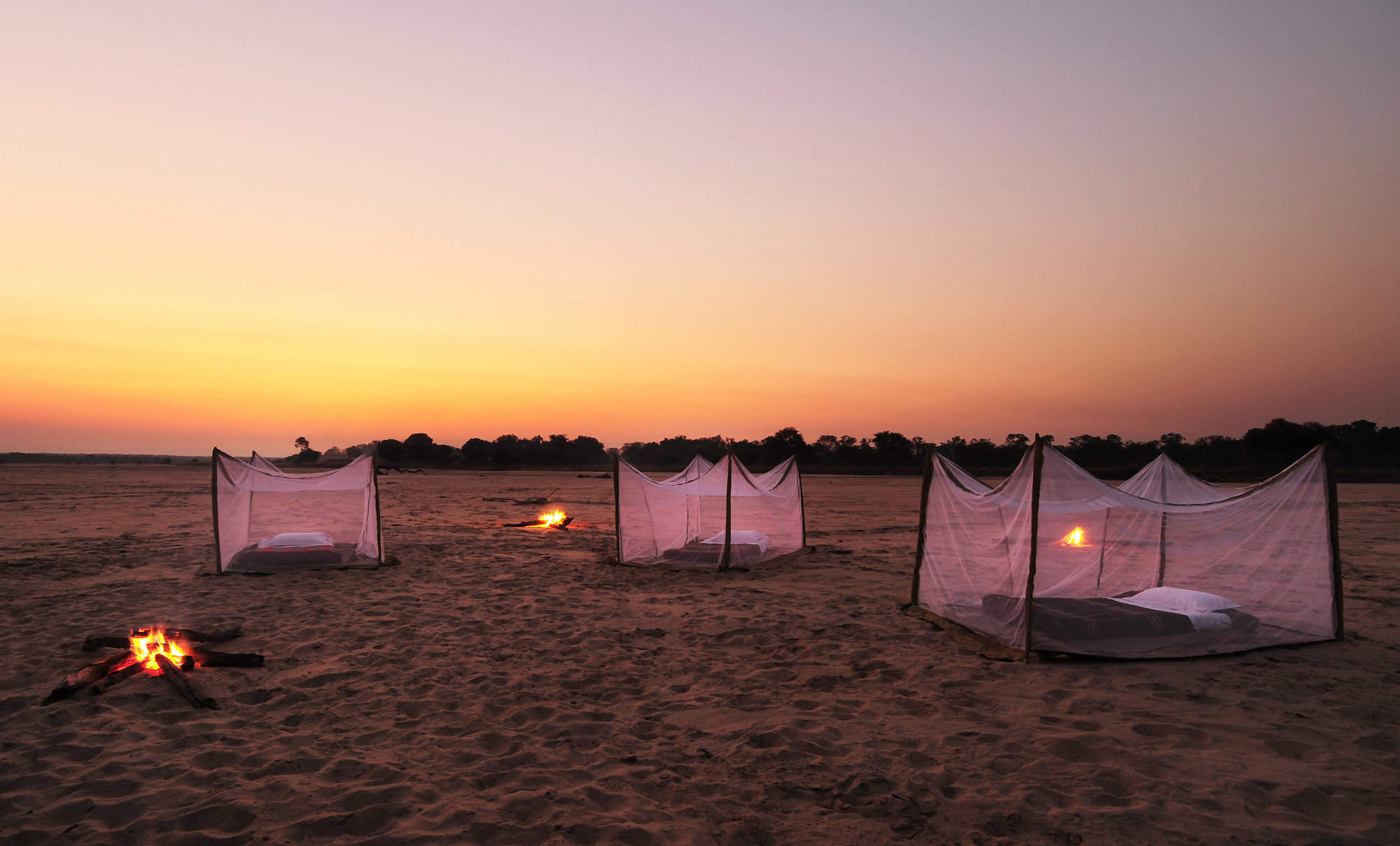
Luwi Riverbed Sleepout
For an adventurous night in South Luangwa National Park, come and sleep out in the bush, around a campfire, with an experienced guide and game scout.
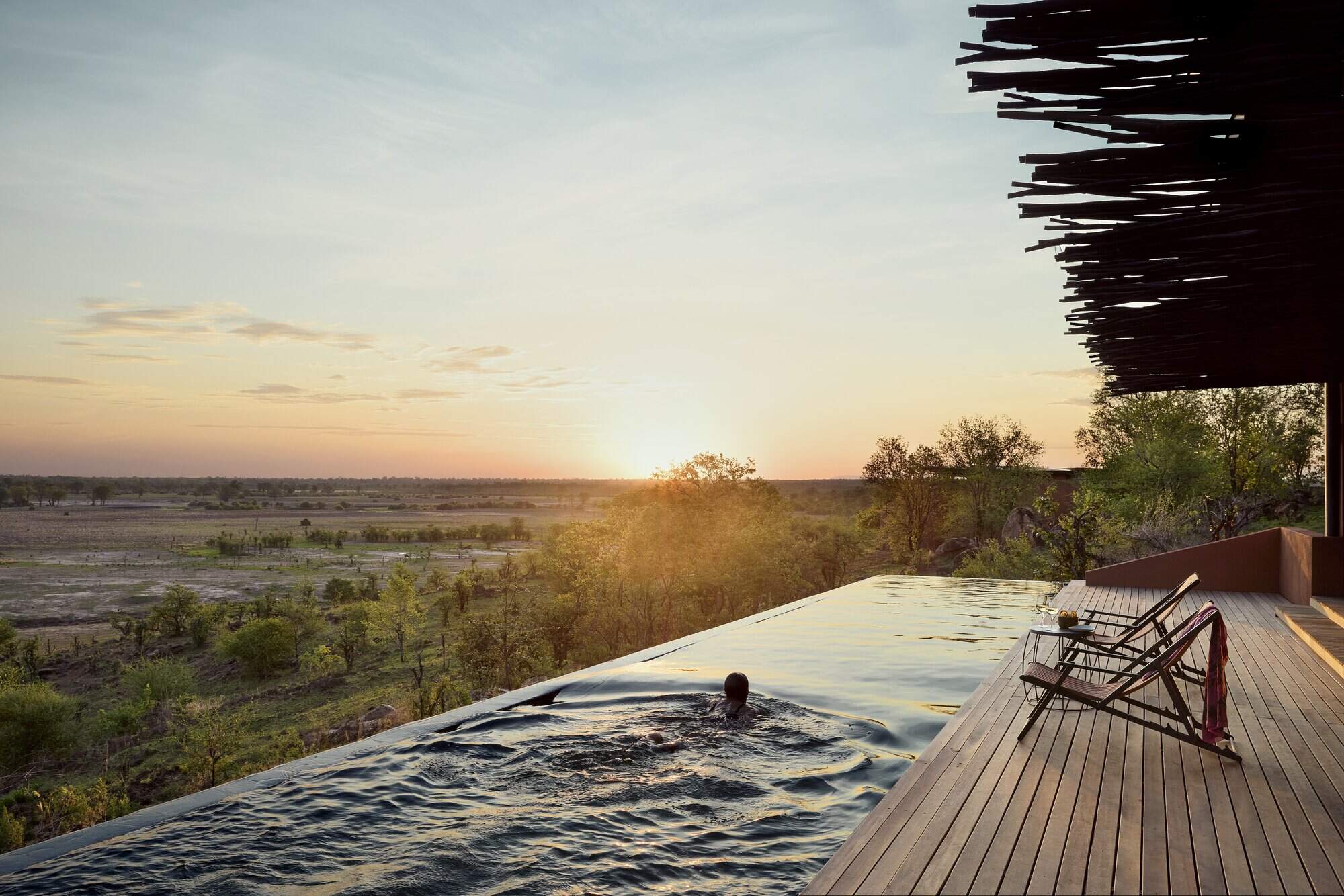
Chichele Lodge
Currently in the final stages of an extensive rebuild, Chichele Presidential Lodge stands high within the park, with superb views, and is due to reopen in early 2025.
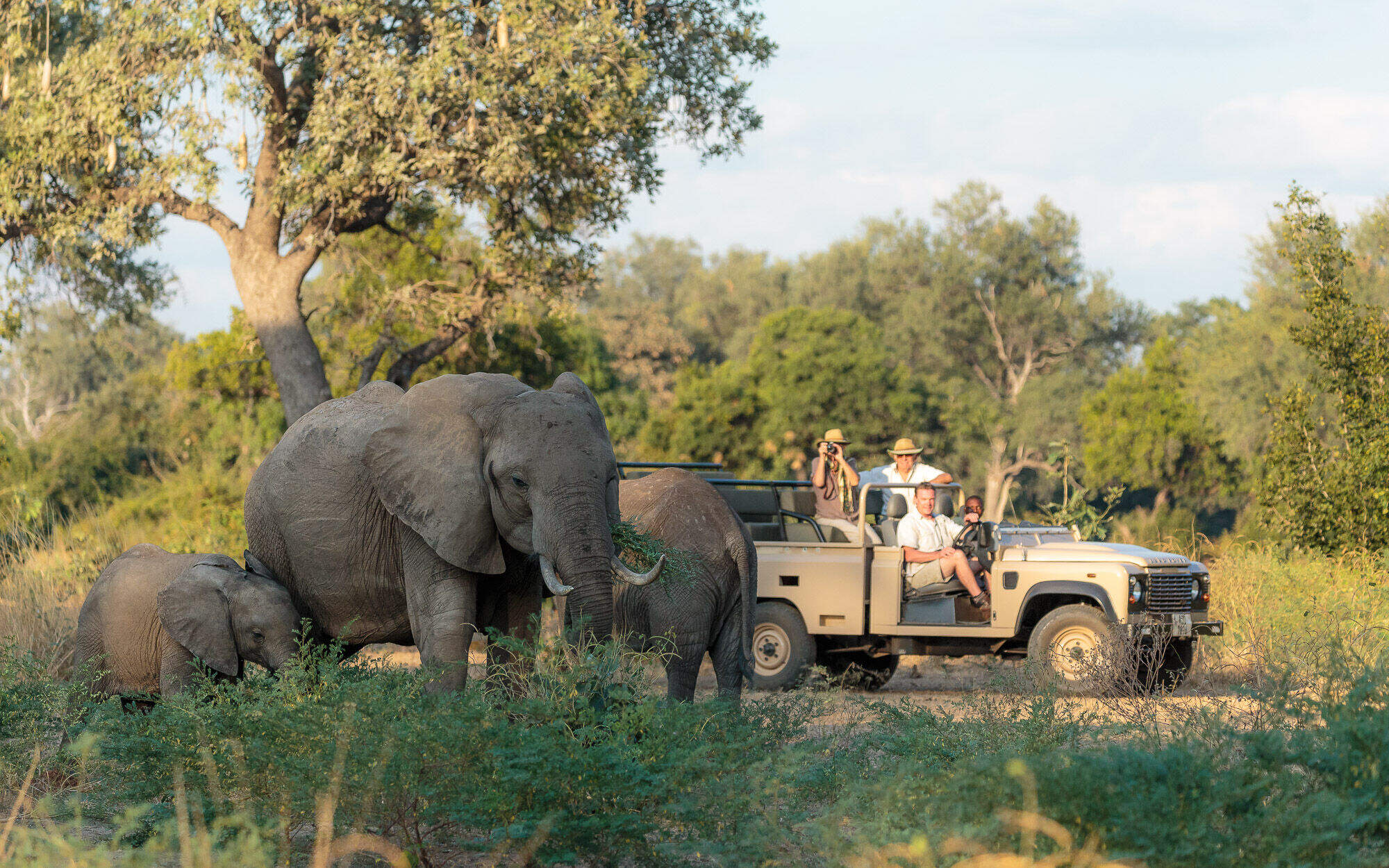
Nkonzi Camp
A simple and rustic bush camp, Nkonzi has a strong focus on walking safaris in this remote section of Zambia’s South Luangwa National Park.
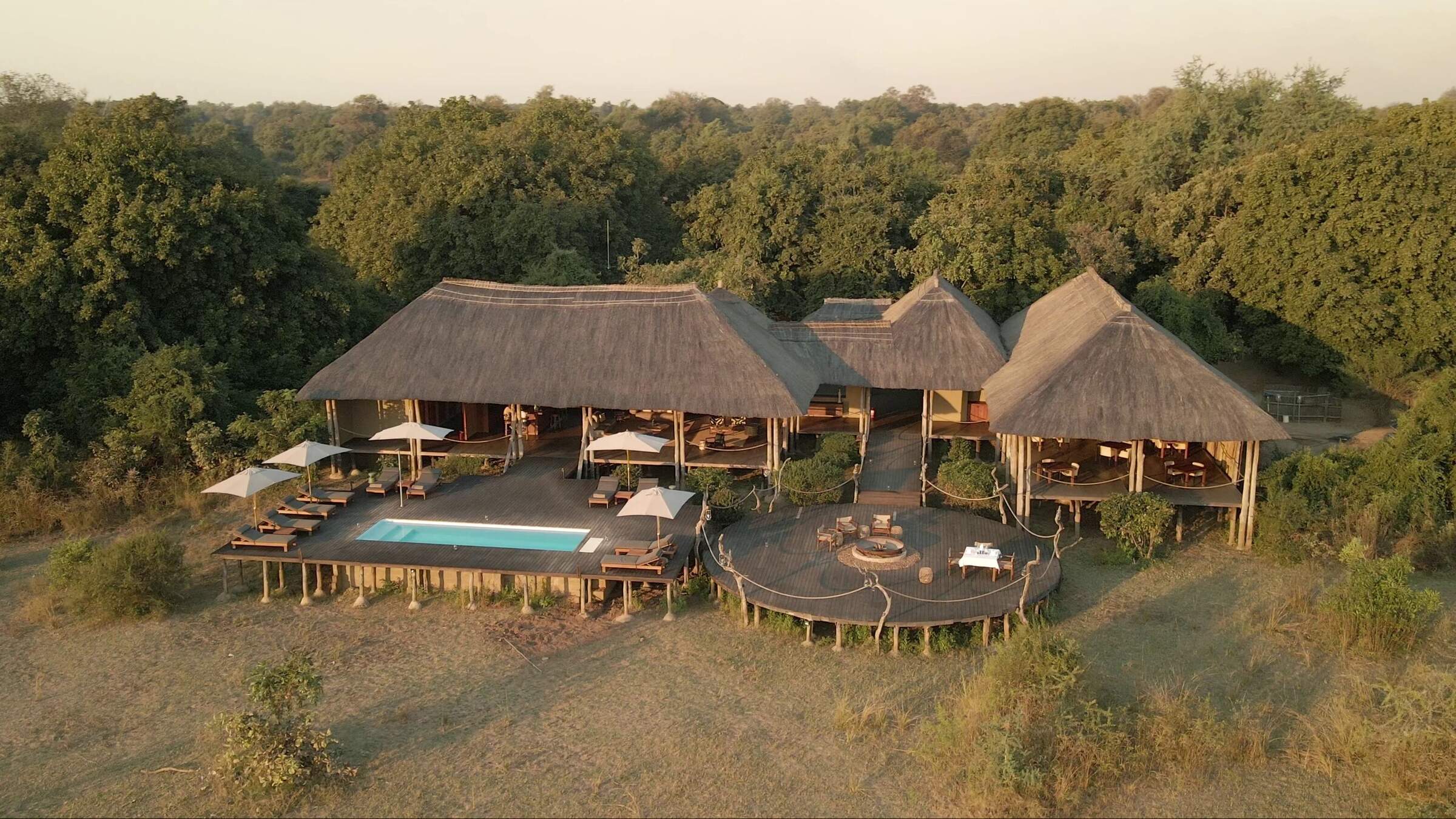
Chikunto
Chikunto Safari Lodge is a more traditional property in the South Luangwa National Park, sitting on a peninsula of land created by the meandering Luangwa River.
When to go to South Luangwa National Park
Our month by month guide: What it's like to visit Luwi Bushcamp in South Luangwa National Park
Jan
Feb
Mar
Apr
May
Jun
Jul
Aug
Sep
Oct
Nov
Dec
South Luangwa National Park in January
January marks the height of the wet season in South Luangwa. Expect frequent downpours, often lasting a few hours, with intermittent sunny periods. The mercury regularly climbs above 30°C, accompanied by high humidity. The park's landscape is verdant and lush, with crystal-clear air.
However, the abundance of water causes most larger animals to disperse, and the thick vegetation can hinder game viewing. Walking safaris are largely impractical during this time. Migratory birds, many in breeding plumage, boost the area's avian diversity. Most lodges close and the few that remain open offer their lowest rates. Only the central network of all-weather roads is reliably passable for 4WD safaris. Low numbers of visitors ensuring a tranquil park experience for those who do visit.
- Wet season peak, frequent showers
- Most lodges and all bush-camps are closed
- Lush vegetation, ideal for photography
- Large wildlife is scattered, can be challenging to spot
- Few tourists, budget-friendly rates
Our view
This is not a great time to visit
Weather in January
South Luangwa National Park in February
February continues the ‘green season’ trend in South Luangwa National Park, with impressive thunderstorms delivering short bursts of rain most days, punctuated by clear skies. The park remains awash with water, affecting wildlife distribution and lodge operations.
Dense vegetation limits game viewing opportunities on safari and walking safaris aren’t usually possible. However, the swollen Luangwa River allows for unique boating experiences unavailable during drier months. Despite challenging conditions, patient visitors may be rewarded with sightings of animals caring for their young. The handful of operational lodges maintain low rates, and the park sees few visitors during this period.
- Continued wet season, regular downpours
- All bush-camps and most lodges are closed
- Verdant scenery, photogenic landscapes
- Game viewing challenging due to thick foliage
- Low visitor numbers, economical pricing
Our view
This is not a great time to visit
Weather in February
South Luangwa National Park in March
March signals the tail end of South Luangwa's rainy season, with heavy showers still frequent. Water levels peak, so driving off the park’s all-weather road network remains challenging. Daytime temperatures consistently exceed 30°C, with rain-induced humidity remaining high.
Most lodges are still closed, and thick vegetation continues to impact game viewing and walking safaris. However, this period can offer exceptional sightings of animals with their offspring, and predator activity often increases. Wild dogs have historically been particularly active in the park during this time. The combination of clear air and increasingly blue skies provides excellent photographic opportunities. Birdwatching remains superb as migratory species prepare for their winter journey.
- Wet season persists, intermittent rain
- Many lodges remain closed
- Abundant greenery, picturesque settings
- Young animals plentiful, but hard to see
- Minimal crowds, cost-effective travel
Our view
This is not a great time to visit
Weather in March
South Luangwa National Park in April
April represents a transitional period in South Luangwa National Park as the rains shift from intense downpours to lighter, less frequent showers. The park's scenery remains incredibly green and vibrant, though larger wildlife can be harder to spot on safaris.
Some lodges begin to reopen while seasonal bushcamps remain closed as they prepare for the upcoming dry season. The Luangwa River reaches often its highest level in April, creating a spectacular sight. Despite the challenges, this period can offer unique experiences for those willing to brave the unpredictable conditions – and accept a greatly reduced choice of places to stay.
- Wet season waning, occasional showers
- Some lodges begin reopening
- Landscape still lush, great for photographers
- Wildlife viewing slowly improving
- Few visitors, attractive off-season rates
Our view
This is not a great time to visit
Weather in April
South Luangwa National Park in May
May is a lovely month; it typically heralds the start of the dry season in South Luangwa. While occasional showers may occur, most days are clear and sunny. As winter approaches, temperatures begin to drop, with daytime highs around 26°C.
The drying landscape improves access within the park, and most lodges reopen. Some standing water remains, but game viewing noticeably improves as the vegetation thins out. The clear air continues to benefit photographers. Late May is very popular among the Luangwa’s ‘safari regulars’ who seek to capitalise on good weather, improved wildlife sightings, newly-opened camps (including some seasonal bush-camps) and the final weeks of low-season rates at many lodges.
- Dry season onset, clearer skies
- Most lodges and some bush-camps operational
- Vegetation still green, crisp air
- Game viewing conditions improving
- Last month for lower accommodation prices
Our view
A good time to visit, with pros & cons
Weather in May
South Luangwa National Park in June
June in South Luangwa National Park is characterised by virtually rainless days and abundant sunshine. Humidity levels plummet, and winter's approach brings cooler temperatures, with nighttime lows around 10°C and daytime highs of 25°C.
The landscape remains lush, but the thinning vegetation significantly enhances visibility for game viewing, the conditions are ideal for walking safaris. All the lodges and bushcamps in the park are operational by early June. While some offer shoulder season rates, others are already running with high-season pricing. Wildlife begins to concentrate around water sources, setting the stage for excellent game viewing in the coming months.
- Consistently sunny, cooler nights
- All South Luangwa lodges open
- Wildlife sightings becoming more frequent
- Ideal conditions for walking safaris
- Viewing of the Victoria Falls at its best
Our view
A very good time to visit
Weather in June
South Luangwa National Park in July
As the dry season progresses in South Luangwa, July sees vegetation and grasses dying back, with water becoming increasingly scarce. Wildlife congregates around remaining water sources, most notably along the Luangwa River, leading to excellent game viewing opportunities.
July marks the heart of winter, with daytime temperatures in the 20s Celsius, whilst nighttime lows can drop to single digits. Early morning and late evening game drives can be particularly chilly, with lodges often providing blankets and hot water bottles. Bring your hats, coats and gloves! Visitor numbers rise significantly, and space at popular small camps can become limited. Nearly all properties now charge their highest rates.
- Warm days, chilly evenings
- Game viewing notably improved
- Excellent visibility for walking safaris
- High season prices for most camps and lodges
- Comfortable daytime temperatures
Our view
A very good time to visit
Weather in July
South Luangwa National Park in August
August in the national park offers some of the year's best game viewing opportunities. South Luangwa’s vegetation has largely died back, and wildlife clusters around remaining water sources.
Rain is extremely unlikely, with sunny days largely guaranteed, though a haze may sometimes appear on the horizon due to dust and smoke in the air. Nighttime temperatures can dip below 5°C, but daytime highs reach the 20s Celsius. Warm clothing is essential for morning and evening drives. This is one of the most popular months to visit the park for a safari, with lodges and camps charging peak rates and often booking up far in advance.
- Very dry warm days and cold nights
- Prime wildlife viewing near water sources
- Perfect weather for walking safaris
- Peak season means highest prices
- Some haze may affect photography
Our view
Fantastic: the very best time to visit
Weather in August
South Luangwa National Park in September
September is arguably the very best time to visit South Luangwa National Park. It probably hasn’t rained for many months, humidity is low, and temperatures are just beginning to climb.
Mornings are more comfortable for 4WD safaris, rising to daytime typical highs in the low 30s Celsius. Water scarcity forces the wildlife to congregate around remaining sources, particularly around the Luangwa River, where most of the camps and lodges are situated. There high game densities lead to increased chances of inter-species interactions. It’s peak season for lodges and camps charge which are often fully booked. A little haze may affect long-distance views and photography. The Luangwa River's water levels continue to drop, concentrating hippos and crocodiles life in the remaining stretches.
- Dry and hot, clear skies
- Exceptional month for wildlife observation
- Landscape sometimes hazy due to dust and smoke
- Peak season, lodges often fully booked
- Higher prices for accommodation
Our view
Fantastic: the very best time to visit
Weather in September
South Luangwa National Park in October
October sees the dry season peak in South Luangwa at its most intense, with the landscape increasing parched. Occasional showers may occur as the promise of rain approaches. Temperatures can soar above 40°C during the day, rarely dropping below 20°C at night.
This heat can be draining, so walking safaris will set off early in the morning to beat the heat and sitting in an open 4WD on safaris can feel like facing a large hair-drier. Heat-haze and smoke may obscure the horizon as the Luangwa River becomes a series of pools, crowded with hippos and crocodiles. Other wildlife cautiously approaches these water sources, leading to thrilling predator-prey interactions. Game viewing is at its absolute best with the best chance of witnessing hunts.
- Optimal wildlife viewing conditions
- Very hot days and nights
- Dusty, hazy atmosphere is challenging for photos
- Some lodges start lowering their rates
- Less crowded than previous months
Our view
A very good time to visit
Weather in October
South Luangwa National Park in November
November typically witnesses the end of the dry season in South Luangwa. While the onset of rains is unpredictable, temperatures remain consistently high and humidity builds as the wet season approaches.
Early November may still be dry, but spectacular thunderstorms usually arrive, often later in the month, triggering rapid green growth when they do come – and an explosion of life from insects and smaller animals. Everything seems to come to life! When pools of water becomes more readily available away from the Luangwa River the wildlife quickly disperses. Some camps and all the seasonal bush-camps camps close; those that remain open reduce their rates. The rains quickly clear the air of dust and smoke, improving visibility and photographic conditions.
- Unpredictable month: depends on the rains
- Hot and humid – then the set season begins
- Wildlife dispersing as vegetation thickens
- Lower accommodation rates, fewer tourists
- Improved conditions for landscape photography
Our view
A good time to visit, with pros & cons
Weather in November
South Luangwa National Park in December
December usually marks the first full month of South Luangwa's wet season. Heavy thunderstorms become frequent, interspersed with sunny intervals. Daytime temperatures often exceed 30°C, accompanied by high humidity.
The rainfall transforms the landscape, encouraging lush vegetation growth. It’s a time renewal when insects, birds and smaller wildlife abound. While the larger species of wildlife remains in the park, wildlife viewing becomes more challenging due to the thick greenery and dispersed animal populations. Many lodges and all seasonal bush-camps are now closed as access to the park’s outlying areas becomes difficult. The few lodges that remain open offer lower rates and see few visitors. The rains clear the air, restoring vibrant blue skies and crystal-clear air which delights photographers.
- Rainy season in full swing
- Most lodges closed or offering low rates
- Wildlife harder to spot in thick vegetation
- Few visitors, budget-friendly period
- Lush green scenery, very photogenic landscapes
Our view
This is not a great time to visit
Weather in December

Looking for inspiration on where to travel next?
Visit our trip chooser to explore your options and find inspiration for your perfect African adventure
Inspire me